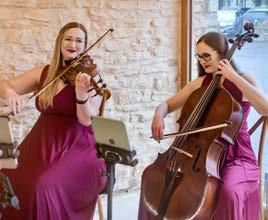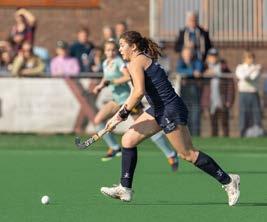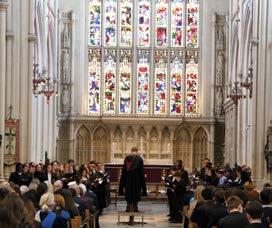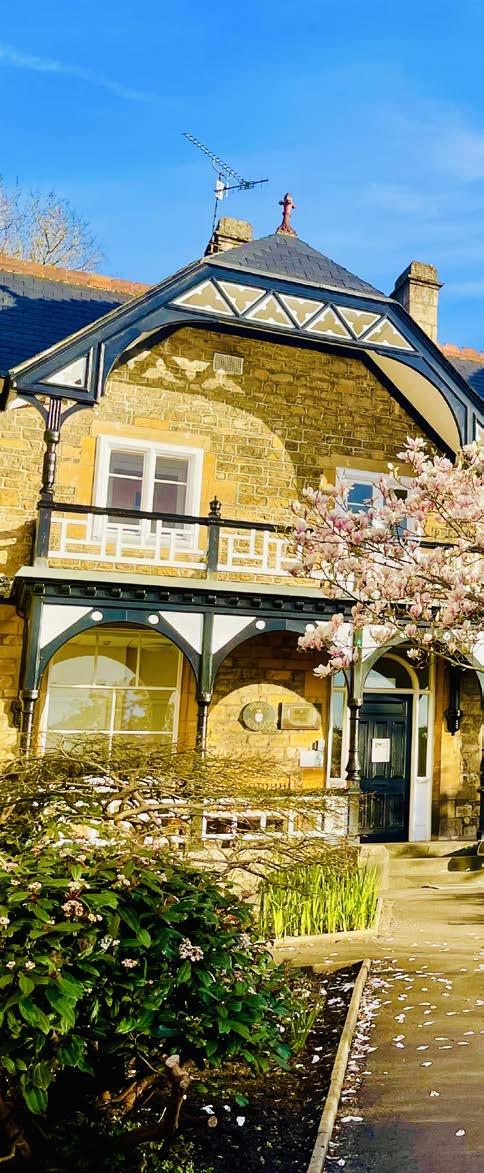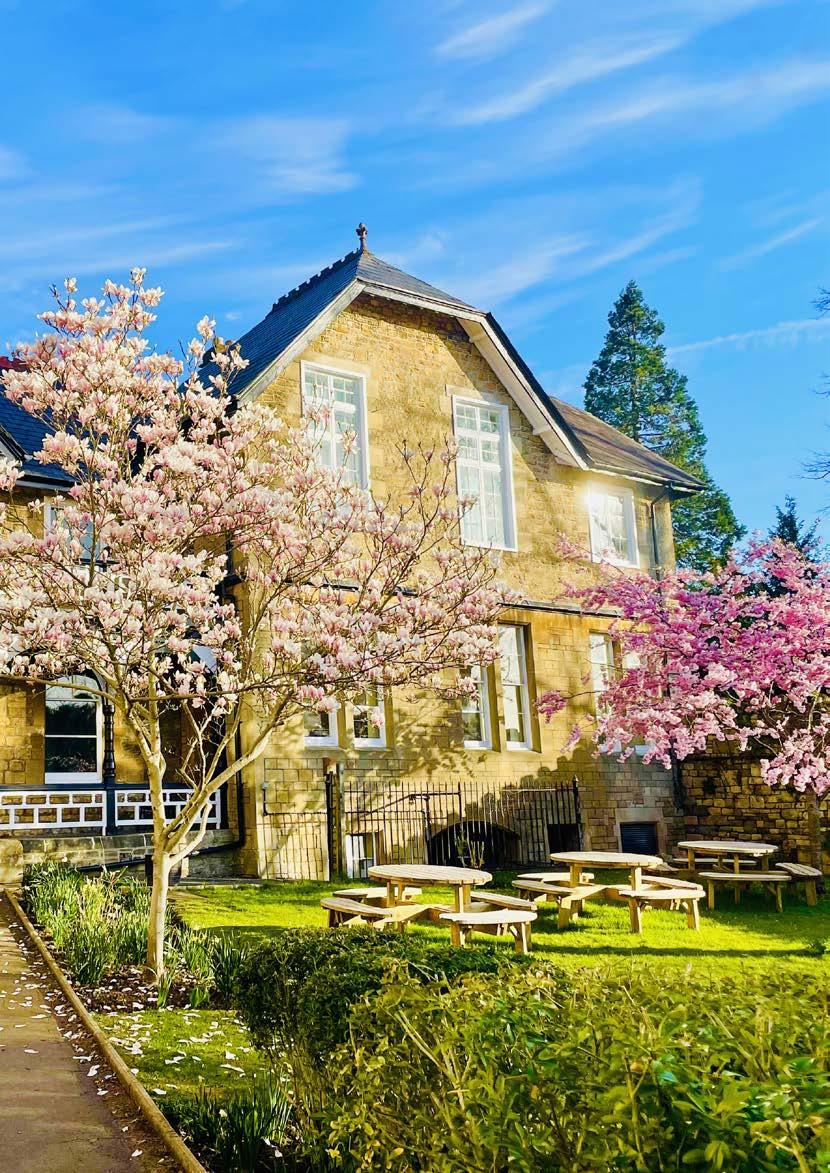

OLD KINGSWOODIAN ASSOCIATION NEWS
Headmaster’s Welcome
Dear Old Kingswoodians,
It is always a pleasure to write to our alumni community, who remain such an important part of the Kingswood story.
Even as we come to the end of another academic year here on Lansdown Road, there is always much that feels new; the new faces we meet of those who will be joining our community in the coming year, new challenges that present themselves as we guide the formation of around 900 pupils in the senior school and 400 at the Prep, the newly refurbished Dixon building and beautifully restored Music and Art facades, and the ever-evolving and not always helpful landscape of education in the UK. Yet beneath the surface, something wonderfully constant continues to shape the Kingswood experience. I speak, of course, of the vision of our founder, John Wesley.
As I said to staff at the beginning of this academic year, we stand on the shoulders of a giant. Wesley’s “manifesto for education”, captured so eloquently by historian and former Kingswood Headmaster, Gary Best, remains strikingly relevant in 2025. Wesley spoke of love over knowledge, of wisdom over mere information, of self-discipline, moral purpose and social responsibility. He urged us to be ambitious for every child—to see in each one a unique potential for good—and to educate the whole person, heart and mind.
The weekly newsletters that I send to our parents provide regular snapshots of our commitment to holistic education that prepares young people to lead meaningful lives. It is sometimes said that “people don’t buy what you do, they buy why you do it.” I am sure that our current parents, like those before them, chose Kingswood because of what we believe about education. Our school is full not simply because we offer excellent teaching, pastoral care and endless opportunities to find and develop talents (though I hope we do), but because we hold fast to our founding ideals; that teaching is a vocation, that schools should be communities of care and justice, and that the goal of education is not merely knowledge and skill, but goodness.
As you thumb (or click) through this edition of your magazine, lovingly compiled by Michele
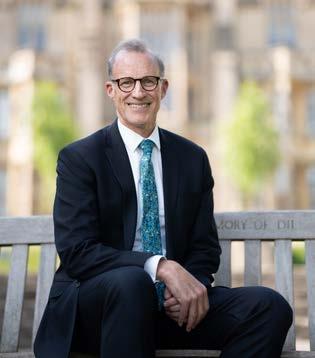
and Zoë, you will be struck by a sense that the spirit in which Kingswood continues to flourish, has been passed down to us by you, our former pupils and staff. It is why I am confident, even amid national and international uncertainties, about the future of our school. Our heritage lifts us up and serves as a reminder that we are part of something larger than ourselves.
To all Old Kingswoodians, parents and staff reading this; thank you. Whether you left recently or long ago, you remain part of this unfolding story. I am sincerely grateful for the many ways you continue to support our efforts. Your lives are a testament to the education you received here. We are proud of you, and we hope you are proud of Kingswood.
With warmest wishes,

Andrew Gordon-Brown Headmaster and Principal of the Kingswood Foundation
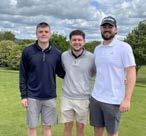
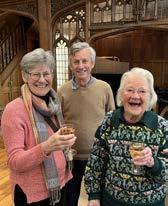
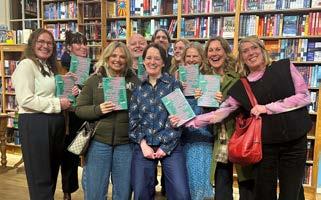
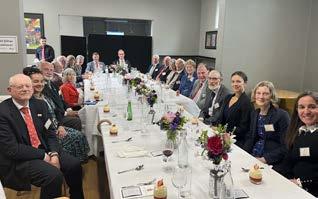
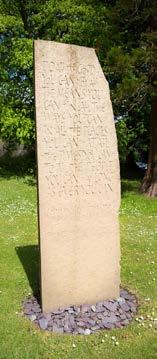
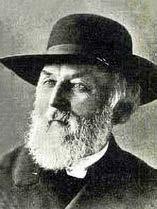
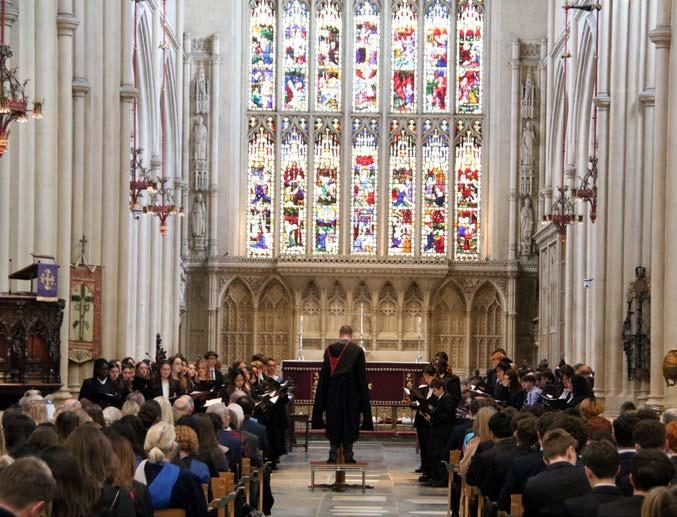
School Services
Many people ask if we still have Chapel services at Kingswood. The answer is ‘Yes’, though not everyday as some of you may remember. Students come to Chapel once a week from 8:35-8:55am for a time of reflection and a good sing.
Over the last year, five talented students have been learning to play the organ and have recently started to play in services! The Bible readings are read by students and are linked to special themes such as the ‘UN International Day of Peace’ or ‘Holocaust Memorial Day’; themes of the Church year; and current issues. We remembered the life of President Jimmy Carter one week and his Wesleyan shaped quote resonated with
us: “My faith demands that I do whatever I can, wherever I am, whenever I can, for as long as I can with whatever I have to make a difference.”
The fortnightly School Service, alternating for Years 7-9 and Years 10-13, provides time for deeper reflection along with musical items, more singing, and games. Services are usually taken by local clergy or staff. Highlights this year included a talk by Governor Professor David Lane on ‘Brain Bots and Belief’,
“...services are presented in a way that the message is accessible to all students...”
services led by the Heads of Science, and a visit from Chine McDonald, presenter of Radio 4 Thought for the Day and CEO of THEOS, a religion and policy Think Tank. All of the services are presented in a way that the message is accessible to all students, whether of faith or not, encouraging them to reflect on their values and what is important to them.
“...the deep faith of these students has become a highlight of my week...”
Some of you will remember Sunday Services in Chapel, but I imagine that was some years ago.
When I asked Boarders if they would like help finding a Church or would like something at School, a few got in touch to say that they had discussed it and would like something here. Therefore, since October 2024 we have had a weekly Communion Service attended by a small group of Year 12 and 13 boarders and occasional members of staff. It is always moving to see the deep faith of these students and it has become a highlight of my week.
Rev. Katy Thomas Chaplain, Kingswood Foundation kthomas@kingswood.bath.sch.uk
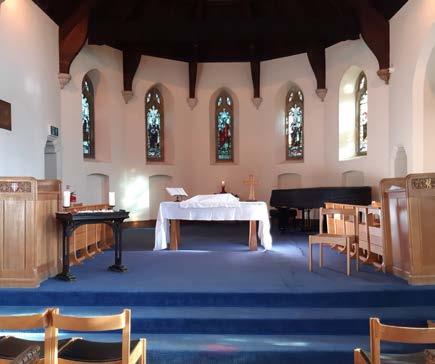
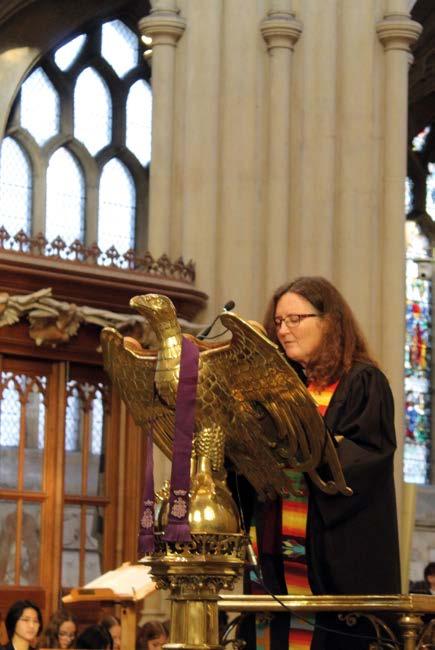
“All the Good We Can”:
Reflections on 30 years at Kingswood
As I reflect on three decades at Kingswood School, I’m struck by how deeply the School’s Wesleyan values—particularly the call to “do all the good you can”—have shaped not only my teaching, but also my broader professional journey.
From my early days as a mathematics teacher to my current role as Director of Partnerships and Community Engagement, I’ve been privileged to witness and contribute to a school community that values curiosity, compassion, and service.
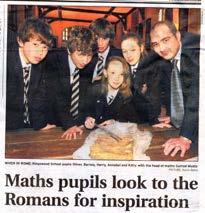
A Life in Mathematics
My journey began in the mathematics classroom, where I quickly discovered the power of contextualising learning. Whether exploring the height of Roman Dogs thanks to the help of Kingswoodian Leslie Cram, or the algebra behind biofuel production, I’ve always believed that mathematics should be a bridge between the classroom and the world beyond. As Head of Mathematics, I worked to
embed this philosophy into our curriculum, developing creative teaching materials that connected abstract concepts to real-world applications— from codebreaking at Bletchley Park to scale models of the Phoenix Caissons used in the D-Day landings.
Beyond the Classroom: STEM & National Impact
My passion for STEM education has taken me far beyond the walls of Kingswood. I’ve led HESTEM-funded research with the University of Bath on the transition from sixth form to higher education, delivered INSET training for PGCE students at Bath Spa University, and served as a “STEM Connecting Teacher” for the Royal Academy of Engineering.
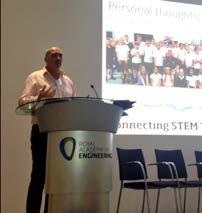
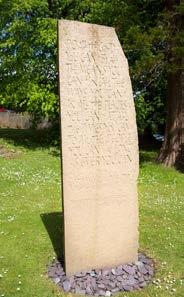
Through these roles, I’ve supported teachers across the South West and helped students see the relevance of STEM in their lives—from disaster response simulations to the physics of elite athletes.
“...allows me to foster meaningful connections between our students and the wider community...”
I’ve also had the honour of representing the UK mathematics community at events such as the Parliamentary Scientific Links Day and have contributed to national policy discussions through my work with the Institute of Mathematics and its Applications (IMA), MEI, and NCETM. And proudly became one of the first Fellows of the newly created Chartered College of Teaching.
Partnerships & Purpose
In my current role as Director of Partnerships and Community Engagement, I now serve as a custodian of Kingswood’s Wesleyan ethos. This role allows me to foster meaningful connections between our students and the wider community—locally, nationally, and globally. Whether through bursary funding, community aid initiatives, or studentled volunteering, our aim is to cultivate a sense of responsibility and compassion in every pupil, and living Wesley’s call to action of doing all the good we can in all the ways we can.
Our students now contribute over 4,500 hours of service annually, delivering an estimated £24,000 of social value. These efforts are not just numbers—they are stories of kindness, leadership, and transformation.
Alumni Making a Difference
I’m equally proud of the way our alumni continue to embody these values. Two former students I am currently working with, exemplify the spirit of service we strive to instil. Adrian Raisbeck (KS 1987-92), inspired by his time at Kingswood, founded Mbora in Malawi— a social enterprise that empowers local communities through sustainable Fintech, agriculture and education.
Scan the QR code to find out more.
Meanwhile, James Kellock (KS 1995-2002) is developing a digital platform designed to encourage everyday acts of kindness, reminding us all of the power of small gestures to change the world.
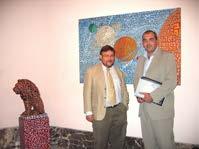
Looking Ahead
As I look to the future, I remain excited by the possibilities of partnership and innovation. Reflecting on previous successes such as launching the Bath Maths Walk, collaborating with Bath Rugby on STEM projects, creating a schools project with an Italian artist (pictured above) or next year supporting the South West’s first Formula One in Schools Centre of Excellence, I believe that education is most powerful when it is shared. Which is why my favourite photo from this year is the one below. As a coach of the Mighty U16B’s rugby team this year after a narrow loss
at Cheltenham College, I found myself driving the minibus back to Bath. Spirits were high despite the result. As I travelled past the Upper back to school, I slowed to pass a car parked on the road near the Hare and Hounds. I spotted a group of middle aged men waving at the bus. To my amazement, it was a few members of my original U16 team from nearly 30 years ago—now grown men, but unmistakably the same lads I once coached. We shared a laugh, a few stories, and of course, a photo beside the iconic Kingswood minibus. It was a lovely, serendipitous moment—a reminder of how the threads of Kingswood life continue to weave through time, connecting generations through shared values, memories, and muddy boots. To all former students: thank you for being part of this journey. Your stories, your service, and your successes continue to inspire the next generation. Please do get in touch to let us know what you have been doing and let us all continue to “do all the good we can.”
Garrod Musto Director of Partnerships and Community Engagement
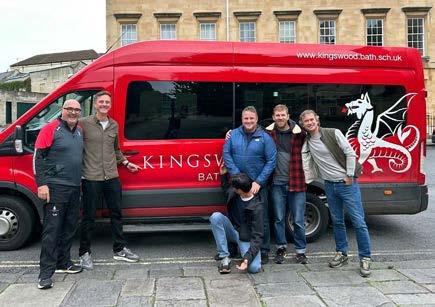
Garrod with Tobia Rava
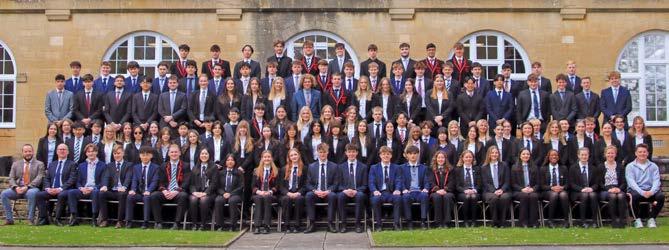
2024 LEAVERS
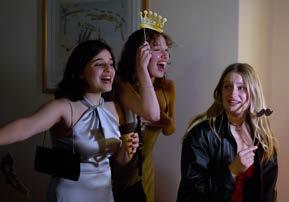
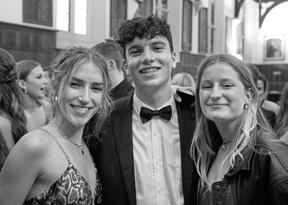
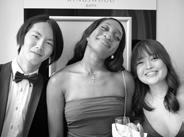
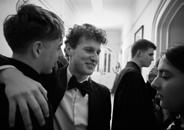
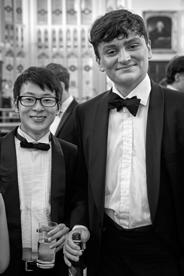
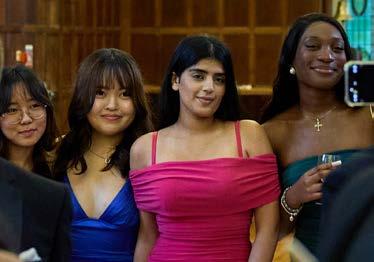
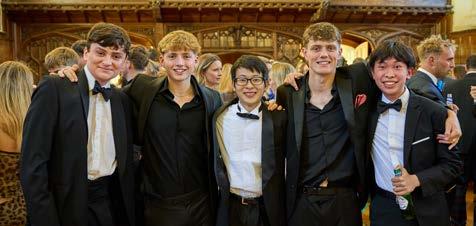
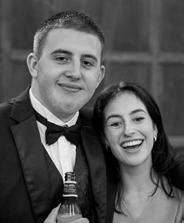
Leavers’ Destinations 2024: Analysis LEAVERS
Kingswood students leave ready to make their mark on the world, ready to thrive and fulfil their potential in university and beyond.
University of Exeter
University of Cardiff
University of Leeds
University of Manchester
University of Bristol
University of Reading
University of Nottingham
University of Oxbridge & University of Cambridge
POPULAR UNIVERSITY DESTINATIONS 2024
Being Head of KPS must be one of the best jobs in the world
If my old Headteacher could see me now he would not have believed it.
Iguess, this is what KPS is all about, allowing children to grow, develop and thrive in a hugely positive and supportive environment. Seeing the children grow in confidence, seeing their academic profile improve and without them becoming anxious is a complete joy. A constant throughout the children’s journey through our school is working side by side with talented, inspiring and dedicated teachers. You can be on a mountain bike at 5pm and with the same teacher doing maths the next morning. We want our children to grow up with passions, whether that be F1 in Schools, on the stage performing or travelling off to national sports finals.
“Life at KPS continues to be fast moving, refreshingly full and wholesome.”
Life at KPS continues to be fast moving, refreshingly full and wholesome. Our children can climb trees, look after chickens, collect bugs, feed and take Darwin (our tortoise) home for half term, the older children can be a buddy to younger ones and all the children through our school
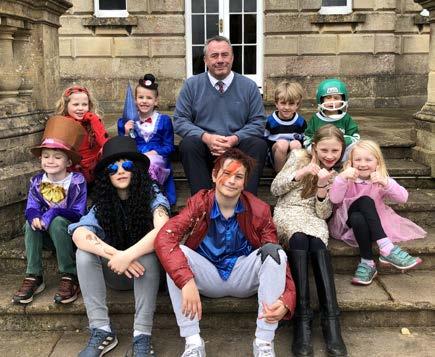
council can have a voice in their school.
This year we have been raising money for the RNLI and focusing on water safety. We have had a retired lifeboat captain come into speak to the School. At the same time we constantly use our parent skills and professions to further enlighten our children, we have had a dentist, a doctor, a surgeon, an engineer and an actor all tell their stories to the children.
Our nursery continues to be a deeply attractive place for modern working families, allowing parents to return to work at the same time leaving their children to be looked after by a super team of early years educators. It is one of the joys of my
job spending time with our youngest children.
In a post VAT private school world, the Prep School continues to forge a strong path against a tide of Prep School closures and mergers. Being really clear about our identity, our differentiators and staying true to our heritage are all things to keep close to everything we do.
You are all invited to come and see us, children and staff would love to meet any Old Kingswoodian and if you have a skill or an inspiring story, please do get in touch, the children would love to hear it.
Yours
Mark Brearey Headmaster, Kingswood Foundation Prep School
Gap Year Assistant
NIKITA BRIAZGHIN (KS 2022-24)
Three years ago, while signing my contract with Kingswood School, I noticed a small but striking error: the graduation year was mistakenly listed as 2025 instead of 2024. In hindsight, this error feels almost symbolic, as though I was destined to remain at Kingswood for an additional year.
Returning to the School as a Teaching Assistant and Alumni Development Officer was a transformative experience that deepened my understanding of education and its impact.
Although I am no longer a student, I continued learning from the remarkable educators who make Kingswood so special. Among them was my mentor, Garrod Musto, a dedicated teacher with nearly 30 years at the School, who played a pivotal role in shaping my personal and professional growth. Much of my time was spent assisting him in his work with students. Within Kingswood’s warm and collaborative environment, I guided children through math problems and enhanced Computer Science lessons with insights from my A Level studies and personal research. Observing
and taking notes on the School’s teaching methods helped me refine essential skills in presentation, body language, and classroom management. Leading lessons independently was both a challenge and an opportunity, as the feedback I received proved invaluable for improving my teaching approach.
My growth extended far beyond the classroom. My colleagues introduced me to books and resources that sparked new ideas and aspirations, significantly contributing to my career development. This role solidified my passion for education, highlighting its critical role in shaping human opinions and perceptions of the world. It became one of the most valuable preparations for university I could have imagined.
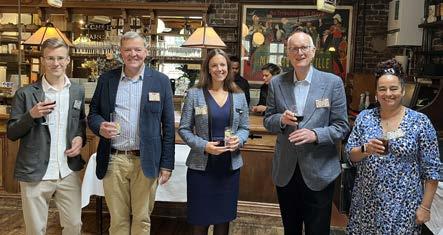
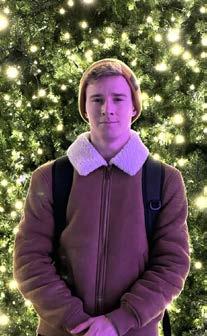
Outside of teaching, I spent part of my day working in the Alumni Development Department alongside Michele, Zoë, and Katie. Together, we designed posts for upcoming alumni events, conducted research on the performance of other schools, and explored strategies to improve communications. This role also took me beyond the school grounds to events such as community suppers, London lunches, and software training sessions. These experiences allowed me to connect with people from diverse fields and backgrounds, broadening my perspective and enriching my journey.
The people I met during this time became an integral part of my life. I could approach them with any challenge and receive thoughtful, meaningful advice, making my year at Kingswood both memorable and transformative. I hope to return to Kingswood someday, confident that this place—so full of wisdom and support— can provide answers to life’s most profound questions and guidance during its most turbulent moments.
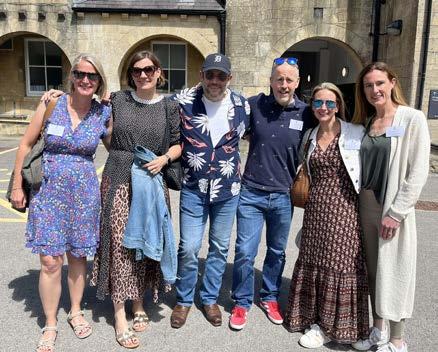
ASSOCIATION DAY 2024
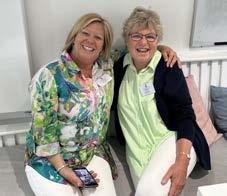
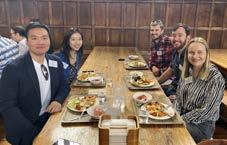
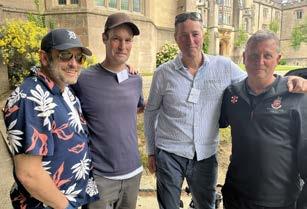
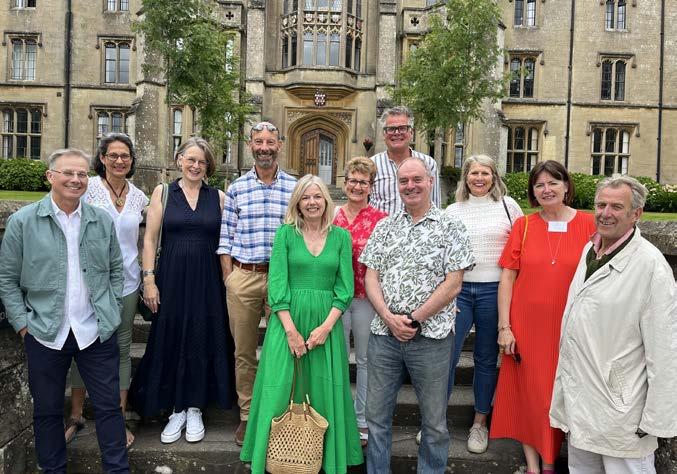
HONG KONG RECEPTION
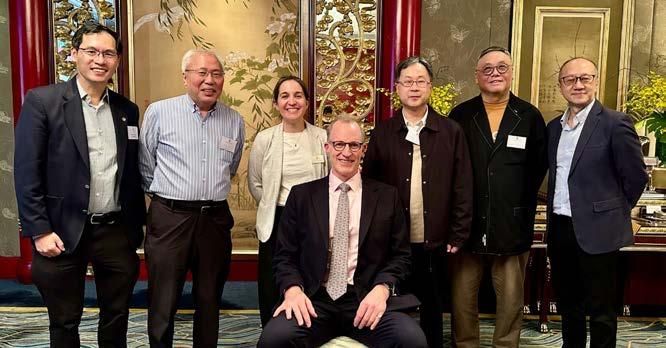
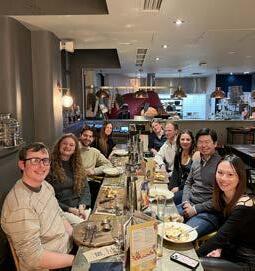
OXFORD RECEPTION
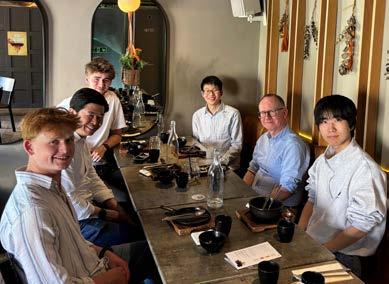
CAMBRIDGE RECEPTION
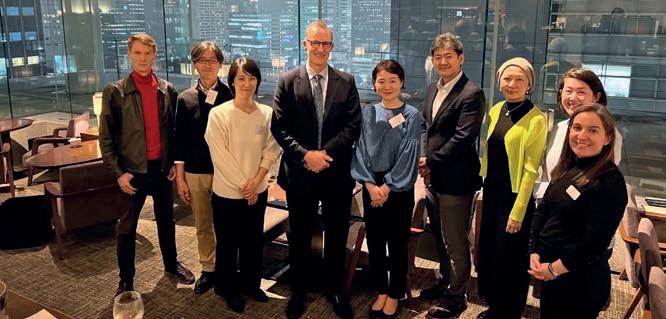
JAPAN RECEPTION
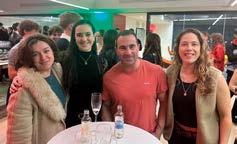
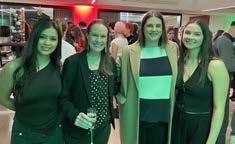
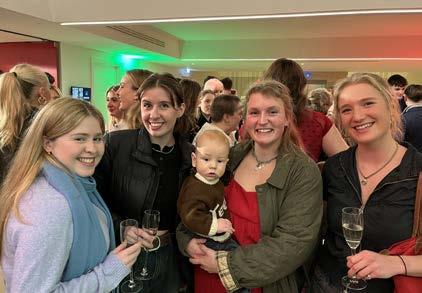
APEX BATH RECEPTION
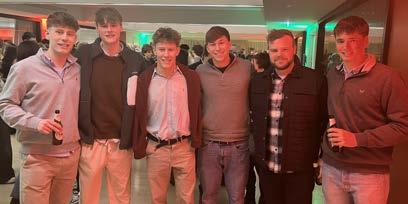
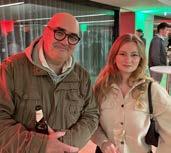
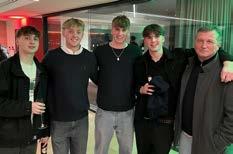
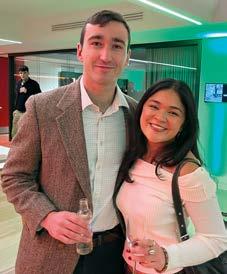
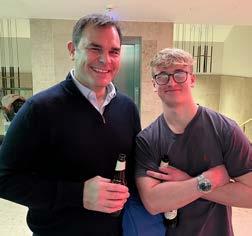
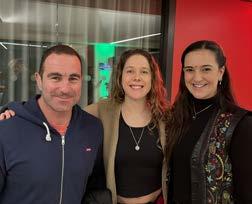
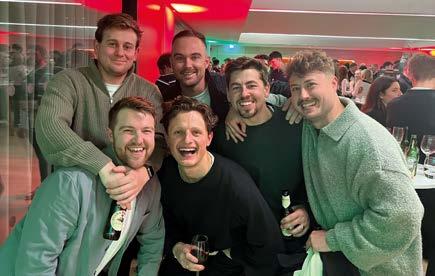
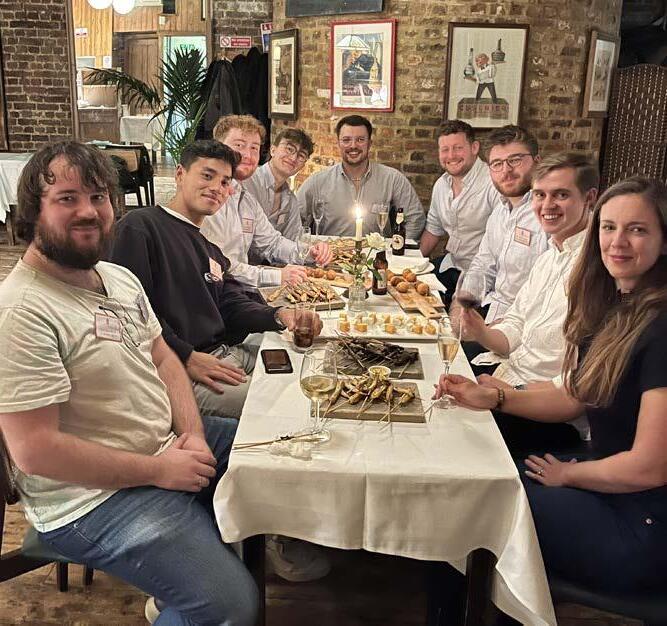
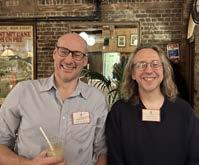

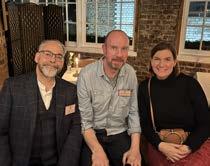
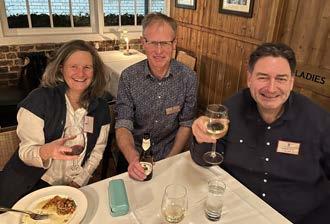
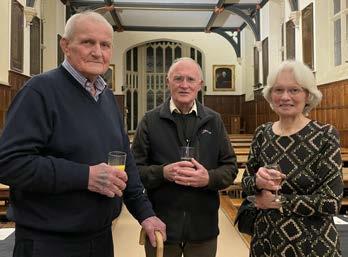
COMMUNITY SUPPERS
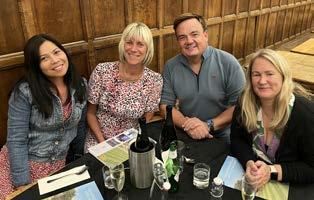
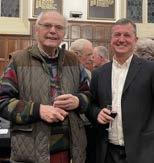
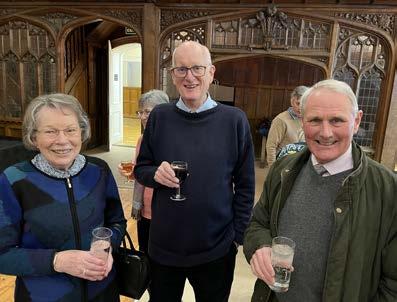
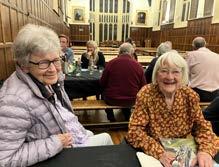
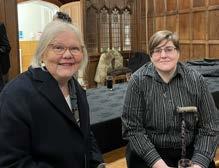
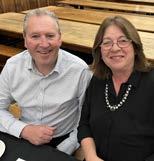
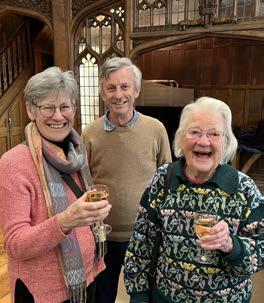
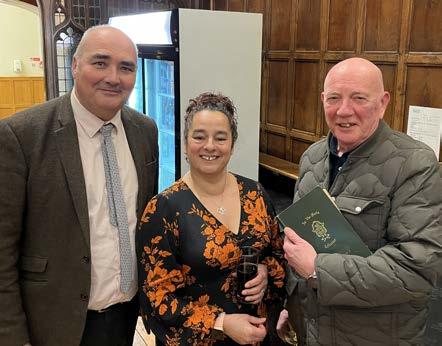
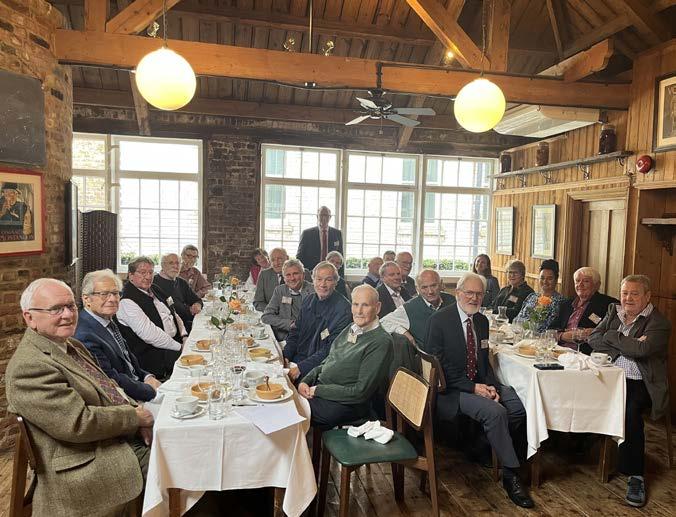
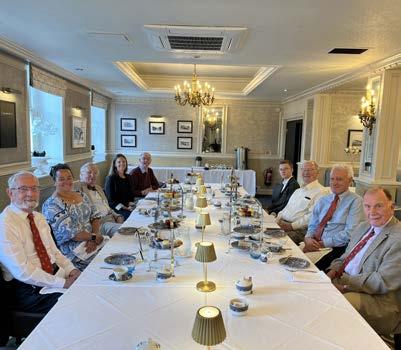
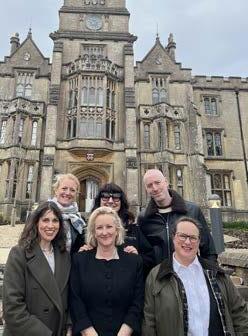
1994 Leavers with Jane Hammond
Cricket Day 2024
To round off an exciting annual Cricket Week, the Kingswood 1st XI took on an Old Boys XI in a highly anticipated T20 fixture.
The Old Boys team featured players spanning leavers from 2008 to 2023, bringing together a wealth of experience and skill for a competitive and entertaining match.
The 1st XI batted first and posted an impressive total of 181-4 in their 20 overs, showcasing their attacking intent and excellent shotmaking. In response, the Old Boys XI put up a valiant fight, with notable contributions from Miles Thompson (KS 2009-15), now a teacher at
the School, who provided stability in the chase. The standout innings, however, came from Alex Ockwell (KS 2002-09), who played a superb unbeaten knock of 64*, keeping the Old Boys in contention. Despite their determined effort, the Old Boys ultimately fell 20 runs short of the target.
More important than the result was the fantastic atmosphere, as the match served as a brilliant occasion to welcome back so many familiar faces to the Upper. The camaraderie
“The camaraderie and shared passion for cricket were evident...”
and shared passion for cricket were evident throughout, making it a fitting conclusion to Cricket Week.
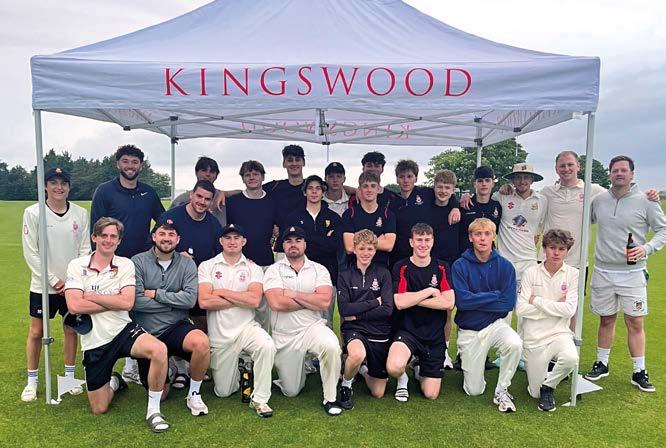
If you are keen to play in next year's cricket day fixture, please get in touch with Euan Gordon at egordon@kingswood.bath.sch.uk
Community Golf Days
The Kingswood annual Community Golf Days take place at Cumberwell Park, Bradford-on-Avon in June each year.
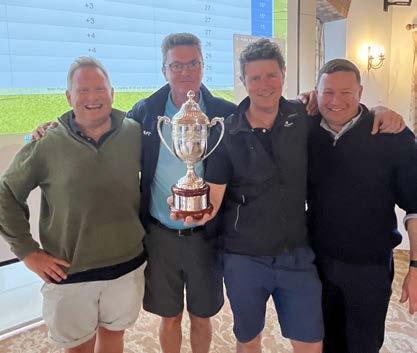
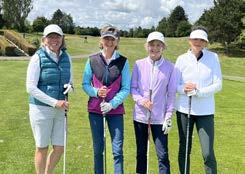
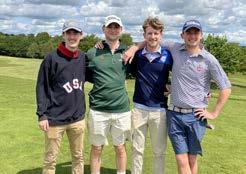
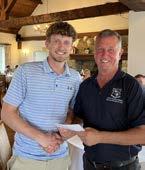
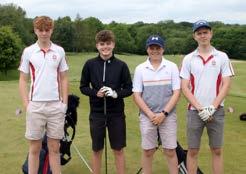

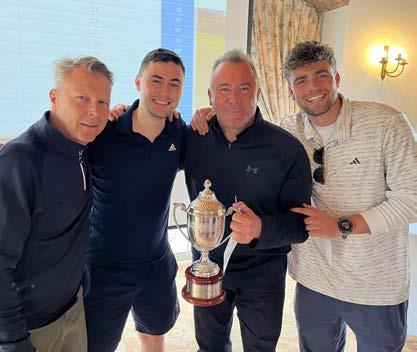
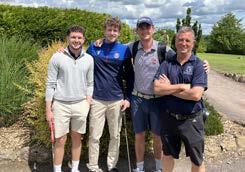
DATE FOR THE DIARY
2026 Community Golf Day is on Friday 5th June.
Look out for further details nearer the time.
The Boys 2024
Sultans of Swing 2024
Winning team 2024 - Weapons of Grass Destruction
Winning team 2025 - KPS1
MEMORIES
Last year Kingswood lost our good friend John, a pupil, teacher and always a dedicated supporter of everything Kingswood. His lifelong connection to Kingswood, from childhood through adulthood, reflected the values we hold dear. His kindness, sportsmanship and good humour were felt by all who knew him, leaving a lasting impact on our school community.
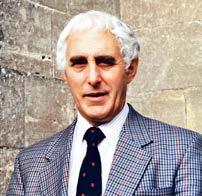
Remembering John Lewis (RJL)
John was a pupil at Kingswood from 1947-56. He then returned to Kingswood as a staff member and will be remembered by generations of Kingswood pupils as Physics master, Housemaster, orienteer, cricketer, canal enthusiast (to name a few), as well as being the Association Secretary from 1995-2007. Many tributes were received by Kingswood School and here are some of them;
In his various capacities over the years John was a hugely important figure in the history of Kingswood, and his dedication and service to the School were exceptional. He was someone whom I knew for the better part of 60 years. Not well, but he always remembered me from the rugby and cricket fields, and always had a kind word when we met. He will be sorely, and rightly, missed by the Kingswood community.
John was such a special person and I won't be alone in feeling privileged to have known him. He contributed so much to his students too. His care, his knowledge, his kind ways and that twinkle in his eye and smile will remain with me.
John was a friend and valued member of our all conquering athletics team, which produced several internationals at the end of the fifties.
Whilst RJL didn’t have much luck trying to teach me Physics, he did encourage me to orienteer. I think we were part of the first cadre to partake. He also was instrumental in me, along with others, volunteering for the Kennet and Avon Canal Trust, which led to several Sundays spent at the bottom of the deep lock in Widcombe! I also thoroughly enjoyed two Easter holidays spent touring around the canals of the BCN circa 1974/5. After I left KS in 1977, RJL kept in touch with my parents and organised several orienteering outings with KS pupils on land owned by them at Hunstrete.
I remember John as a towering figure, literally and figuratively. His sheer enthusiasm for cricket, orienteering and housemastering touched me deeply as a young member of staff.
I was one of his orienteers during my schooling between 1981-86, and still orienteer to this day. So John had a lasting impact on myself and my family.
John was a prefect in Westwood during my second year at Kingswood. He was so well liked and respected but had the biggest shoes and slippers. I pretended to row across the dormitory on a slipper of his. He saw the joke and laughed.
Throughout his school years, John was a great sportsman unlike me, but my interests were the violin, the school orchestra and winning music competitions which I won two years running in Westwood. Fast forward many years, John was very supportive when I organised a reunion in East Anglia at the Park Hotel Diss. David Brown came too. John had taken over from E.P. Aust the previous secretary for Old Boys, because in our day Kingswood had not become co-educational.
Patsy, I know will be lost without John. I send my love and prayers at this sad time. What a man, what a record, John's service to his school as a pupil, prefect, teacher and friend to many more than boys and girls at the School. Rest in peace good friend.
It’s no exaggeration to say that John Lewis was one of the greatest influences in my life. By introducing me to orienteering, and through that to the wider world of outdoor activity and challenge, he gave me an interest which has been life-long and life-shaping. It’s almost fifty years since my first outing with RJL, and I still walk, run and occasionally orienteer. I’m sure there are many others who can say the same. What a legend.
Memories of RJL
There was always something rather endearing about John's relish for his numerous enterprises.
At Alliance High School, Kenya in 1972 one of those activities was his coaching of the rugby team. As a gap year student, I was quickly enlisted by him and learnt a lot about how to get young people involved and enthused in team games. His powers of persuasion were already legendary!
Back at Kingswood in the 1980's and 1990's, one could appreciate as a colleague his engagement with pupils in his various exploits. Others more qualified will tell of his teaching, house mastering and orienteering.
"Did any of us really acknowledge how much time he selflessly devoted to Kingswood?"
He was also a keen cricketer, an elegant batsman, and organised a staff team which played on most Wednesday evenings in the summer. For many of us, this was one of the highlights of the week. He made each of us, even non-cricketers, feel valuable team members though he did expect at least a rudimentary understanding of cricket parlance. John didn't really do sentences. He tended to fire the odd phrase or observation as it occurred to him and you had to be on your toes to keep up. "Eighty-five for two at lunch", as he shot past in the corridor. "Um? Ah, test match!"
John retired (well, sort of) and then gave his time to the Kingswood Association. His office was in the midst of Middle House dayrooms so we often met, usually just as some vital help was needed. Before you knew it, you were immersed in his world of correspondence, files, boxes, photos and post-it notes. And this at eight in the evening!
Did any of us really acknowledge how much time he selflessly devoted to Kingswood? What a magnificent example he set.
Remembering Dad
Below are the memories spoken by John's son, Roger Lewis at the Service of Thanksgiving for the life of John at Walcot Methodist Chapel.
Firstly on behalf of my family - all here todaycan I thank you for joining us this afternoon.
It is entirely appropriate that we meet here at Walcot to give thanks for John’s welllived life. His Methodist faith and this church especially were an important part of Dad’s life and community.
My own childhood memories of Dad and Walcot seem to mostly involve singing. Be it in the choir stalls up above me here, or everyone singing Happy Birthday to me on Christmas morning.
In fact, John and his sister Barbara - here today - grew up as close to the church as is perhaps possible, with
a Methodist minister as a father. I assume it was a very traditional upbringing, although it has to be said John and Barbara’s Mother Margaret Lewis was a very progressive Lady, being one of the first female graduates of Nottingham University.
Family life for John and Barbara was in a succession of methodist church 'manse' houses in Matlock, Derbyshire; Helmsley, North Yorkshire; Gloucestershire and South London. I suspect back then as a boarding school pupil at Kingswood Prep, then the Senior School, Dad’s lifelong passion for the choir was only tempered by his love of outdoor sports, cricket being the chief distraction.
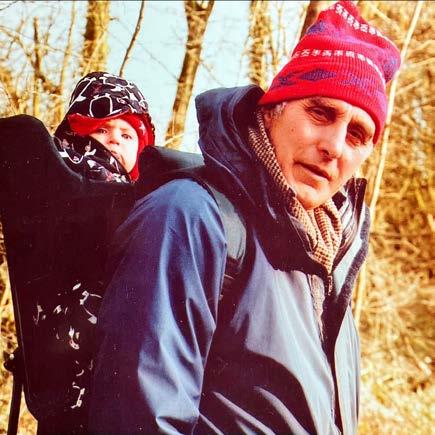
“Dad touched the lives of many and made a difference to us all.. ”
The Methodist Church also had a role to play in introducing my Dad to his then wife to be, Patsy, when as joint members of London’s “Hinde St” Methodist Church, they went on a date on a Regents’ Canal cruise. Presumably, Mum was invited along on this boat trip by Dad, canals being another of his lifelong passions. At least Mum knew what she was letting herself in for early on.
A science degree at Kings’ College was followed by teaching posts at Felsted School, then Alliance High School in Kenya, with Mum, and I understand also Nick Thorne, our organist today. Dave and I were born in Kenya, before a return home to the UK and a career long commitment to Bath’s Kingswood School, with which so many of you here have strong associations.
His extended family was very important to Dad. He followed very closely his two nieces’ musical exploits, Mary and Sue; and we can be thankful to his sister Barbara and brother in law Bernard for introducing Dad to Orienteering.
Rarely seen without a camera around his neck, it is no surprise that his three grandchildren featured heavily in Dad’s numerous digital montages. Lara usually on horseback, Seb and Aleksi playing football or cricket. Hours were spent in the study at home, perfecting these masterpieces, before they were printed and proudly displayed under glass on coffee tables at home – where they still appear.
This community here at Walcot was a key part of Dad’s life, where he enjoyed volunteering for many years.
Dad’s longest lasting passion and pastime was singing in the choir. It no doubt brought him closest to his faith, but also to so many of his friends. Hours of practice and then the spiritual high and adrenaline rush of a performance takes some beating.
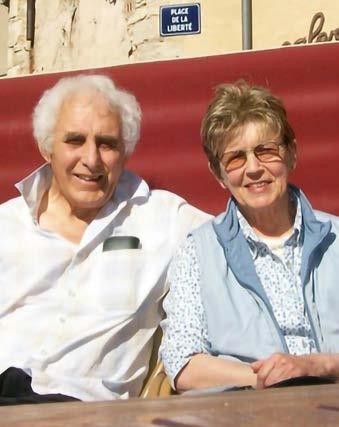
But one choir was not enough for John. As well as school and church choir here, he was a member of many others'. City Sound Voices at St. Stephens, Organum or Lucis at St. Lukes and Bathford Village Choir.
Dad touched the lives of many and made a difference to us all.
You will be missed and not forgotten.
RJL shaped my life...
Along with Roger Austin and John Ede, John taught me physics, laying the foundations for my career as an engineer. He sparked in me a lifelong interest in canals, through the School’s Easter holiday cruises and restoration work on the Kennet and Avon. He also introduced me to orienteering, an absorbing adventure sport that, 50 years later, I continue to enjoy.
Jonathan Lyle (KS 1971-76)
John was unfailingly kind and supportive...
John enabled so many of us to achieve our dreams with an utterly selfless commitment to our orienteering endeavour. Everyone mattered, and all members of the club were represented when the School put on an Avon Schools Orienteering event. The control codes were not numbers, but a pair of letters; yes the initials of pupils at Kingswood who orienteered. John always remembered us, and we will always remember John.
Geoff Ellis (KS 1987-94)
John Lewis and Kingswood Orienteering
RJL was instrumental in introducing orienteering to Kingswood shortly after he joined the Kingswood Staff in1972. The sport was relatively newly arrived in the UK and we all learnt together at events in the Mendips and the Cotswolds.
When I returned to Kingswood in 1996 as a parent, our children Rebecca and Matthew took up orienteering and I was drawn back into the sport by John.
Over four decades, John introduced hundreds of Kingswood pupils and their parents to orienteering, locally in the Avon Schools League and the Bristol Orienteering Klub. Kingswood pupils and parents competed nationally across the UK, including at the British Championships and the Jan Kellstrom festival. The highlight of John's orienteering calendar was the British Schools Orienteering Championships (BSOC) in November, where Kingswood pupils won many times, bringing home clutches of medals.
John was a good friend and an inspirational orienteering coach. Our friendship was forged on long minibus trips to far-flung corners of the UK, often sleeping
on Methodist church hall floors. Invariably, someone on the minibus returned home with a medal or trophy to showcase at Monday morning assembly.
What was it about John that enabled this great legacy of success?
Firstly, he was a skilled and experienced orienteer, using tried and trusted techniques to teach the fundamentals of navigation and then to hone and improve those skills in more challenging terrain.
Secondly, he was a most persuasive motivator, encouraging his young athletes to set and achieve goals for their development as competitive orienteers. And, as many an unsuspecting parent found, few could resist John’s encouragement to help the team and, often, become orienteers themselves.
Thirdly, he was a meticulous record keeper, the Bill Frindall or Andy Zaltzman of Kingswood School Orienteering. Everyone’s performance, their contribution to the school team and their progress, was documented –
and drawn upon regularly for motivation.
Lastly, he was a brilliant publicist, capturing every event with photos, and using them to promote the sport, and Kingswood, through local media.
Many hundreds of boys and girls became orienteers through John. A small handful had the talent and the dedication to become national champions and to compete internationally for British Schools and GB. While some older teenagers decided that spending a Sunday morning getting cold, wet, and muddy in a forest was no longer for them, they nonetheless gained essential life skills in navigation, self-reliance, and resilience. And many, like me, have been gifted a lifetime's enjoyment of running with a map and compass in a forest, seeking that ever-elusive perfect run.
We are all hugely in John's debt.
Jonathan
Lyle (KS 1971-76)
A Life in Music
Alan Tongue (KS 1950-58): Kingswood was central in my early life, as my father Frank Tongue taught there. Growing up as a member of the Kingswood Community was a privilege.
For me at KS, apart from the usual lessons, there were the brilliant periods known as 'Occos', or Occupations. Amongst the ones I chose for myself were Marionettes, where under Phil Arnold's diligent instruction we constructed marionettes and scenery, and rehearsed circuses, underwater ballets and musicals. This is where I came across a lot of light classical music which came in useful later. Printing was another Occupation, where we learnt about typography and were kept busy printing programmes and magazines. I could later spot a typo a mile off and easily design a concert programme. Woodworking too set one up for life in DIY. The main thing was we were left to ourselves to organise a way of life, outside of the timetabled periods. One incentive was the Appelbe Prize for Initiative, which I won at KS for suggesting I form a string orchestra to play at Summerhill, the newly acquired estate in the 50s. This is where I invited the Head of Music, John Sykes, to play his harpsichord under my baton.
As a teenager I helped Bath Opera Group as Call Boy in the wonderful Mozart operas they performed annually. I helped build and paint the scenery (under my Greek teacher Michael Bishop's artistic direction), sang in the chorus and later took the title role in Holst's The Perfect Fool(!). I eventually conducted three of the operas.
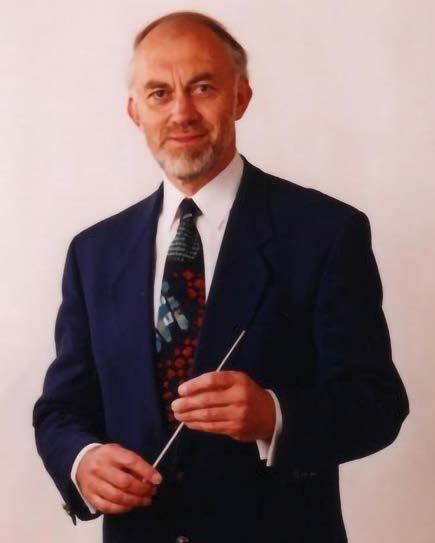
While all this was going on at age twenty I helped set up the Bath Youth Orchestra. I had started to meet other local young musicians, who until then had to travel to Bristol or Weston-super-Mare to obtain their orchestral experience, often playing trite music. Our idea was to play the classics, so soon we had a full orchestra playing symphonies by Mozart, Schubert, Mendelssohn, Dvorak and Tchaikovsky. All conducted by me, often without a score, and performed during university
vacations. To conduct these major symphonies along with some of the great piano concertos played by our own resident pianist, Hilary Coates, was exhilarating. And we earned good press notices, made our own LP record and toured to Germany. By then I had started going to summer school in Italy, under Sergiu Celibidache, one of the great conductors of the 20th century. He continued working with his English students whenever he
came to London to conduct the LSO. On the last of my lessons with Celi he invited me to come as his assistant to Stockholm with him, but my next venture was underway.
"I had started going to summer school in Italy, under Sergiu Celibidache, one of the great conductors of the 20th century...."
After reading music at Cambridge I became Head of Music at a co-ed school in Northern Ireland, Belfast Royal Academy. Being appointed with the task to set up a music department, I was left to come up with ideas. The four years teaching there widened my experience, as I was creating a department from scratch. The bonus was a bursar who was an amateur organist, so he signed cheques for everything I asked for, including umpteen peripatetic instrumental teachers. During my time at the School I was given time off to take part in the Mitropoulos International Conductor's Competition in New York, where Leonard Bernstein chaired the jury. Howard Marshall, Conductor of the National Symphony Orchestra in Washington, travelled in the same lift to a final reception at the Rainbow Room of the Rockefeller Centre, and said to me 'I liked your Mozart' - encouraging praise at that point in one's musical life.
I became known for my work at Belfast Royal Academy, especially my preparation with choirs and instrumental groups for the BBC's Songs of Praise when it came to Northern Ireland, and the local BBC staff soon got to know my musical abilities. So much so that when a music producer vacancy came up it was suggested I apply for the job. As producer and staff conductor of the BBC Northern Ireland Orchestra, for me Phil Arnold's light classical repertoire came in most useful. Working with this 30-piece orchestra over the next ten years was a rich musical experience, planning programmes, supervising and editing the studio recordings, occasionally conducting. Plus arranging, auditioning, commissioning music and attending BBC meetings around the country.
After those radio years I applied to go on a TV course, which in those days the BBC did brilliantly, using some of their best producers to train staff. On my return, and after an attachment in London, I was soon offered a job in television and for the next twelve years was the region's music producer/director and made 160 programmes, often for network transmission. These were across classical music, popular, traditional and jazz. The programmes varied between studio programmes, outside broadcasts and film.
Under Margaret Thatcher more programmes began to be made by independent companies. This meant that the BBC had a surplus of producers and were making fewer in-house programmes. So at age fifty I decided to leave and embark on a freelance career as conductor.
I had continued conducting all this time, with five years as Chief Conductor of the Studio Symphony Orchestra, where James Galway had started his orchestral playing, and fronting The Big Band, the first in the Province, using the top jazzers. I had started a training orchestra, Northern Ireland Symphony, bringing together keen student musicians from all sides of the community, and rehearsing during the worst of the civil unrest in the Province. We regularly gave three concerts after an intensive rehearsal period, first around the Province then at Belfast's Ulster Hall and Dublin's National Concert Hall, which was a first crossborder visit for many of the players. Paul McCartney's Liverpool Oratorio was a highlight. A personal letter from Paul did wonders for my standing with young people. Some opera conducting had come my way at Castleward Opera, I had started a professional chamber orchestra in Belfast, Northern Sinfonietta, and my first book on the great Irish songwriter Percy French was published, A Picture of Percy French.
As I started on my freelance conducting I soon received a useful phone call from my friend and colleague, the singer Heather Harper. Did I know Belshazzar's Feast and would I like to conduct it in Buenos Aires? 'Yes' was the quick answer, and within two weeks was flying first class to Argentina. The concert was a triumph with a great orchestra and choir in the Teatro Colon. At the glittering reception afterwards what interested me was that everyone wanted to talk to me about British music. I went on an exploratory
trip to Romania, touring the country, calling on orchestras, and took a short flight to Hungary, where I also met orchestral managements and artists' agents.
As a direct result of my Buenos Aires experience I started to buy sets of orchestral parts for much of the repertoire of English music: The Enigma Variations, The Tallis Fantasia, The Planets and so on, which I offered to managements in eastern Europe as they started booking me. It turned out that much of this music was unknown to audiences and orchestras: there had never been a push to sell British music abroad, and London publishers were wary of hiring it, as they imagined it would be copied or even not returned. This new repertoire kept orchestras on their feet, and audiences loved it. The Planets was naturally one of the pieces I offered, and I conducted this five times, in the Czech Republic, in Hungary and Romania. No-one knew it, public or orchestras, let alone had played it, and of course they loved it.
At KS a love of languages was instilled in me by Michael Bishop: I had picked up Italian and German at summer school, and I taught myself Romanian and enough Hungarian for conducting purposes. Some of the key concerts from this thirty year period before the onset of Covid brought it to an end were: my devised evening of excerpts, both spoken and played, from Mendelssohn's A Midsummer Night's Dream and Prokofiev's Romeo and Juliet, with five actors from the National Theatre of Craiova; the closing concert of the Bucharest
Week of New Music which comprised four premiers. All four composers were present at rehearsals, which could have been a trial. I made the most of it, letting them advise on tempo, balance and all manner of details. The four works were Violin Concerto No 2 by Fred Popovici, Rite for Enchanting the Air by Livia Teodorescu, Labyrinthos by Arne Mellnas and Symphony No 3 by Doina Rotaru. The orchestra was the Romanian National Radio Orchestra, a superb orchestra, but one with a reputation for not liking new music! To counter this I spent the first two days on sectional rehearsals and this fairly kept up their interest. The concert was a triumph. Another big occasion was conducting the Elgar Violin Concerto with Romania's top orchestra, the Bucharest Philharmonic. The soloist was Gabriel Croitoru - we played it in total about seven times all over the country and in Budapest. The two performances I gave of Elgar's The Dream of Gerontius, were probably my highlights: I was given three leading soloists, the two chief choirs in Budapest, and my usual orchestra, the Duna Zenekar.
Budapest became a homefrom-home, where I had a 25-year collaboration with the Matyas Templom, the church on the hill where Hungary's kings were crowned. From the west end gallery I guest conducted soloists, orchestra, organ and choir in masses as part of the Sunday morning service, by Palestrina, Haydn, Mozart, Beethoven, Schubert, Liszt and Matyas Seiber. These visits often coincided with a concert elsewhere in Budapest on the previous Friday with the Danube Orchestra, Duna Zenekar.
Home in the UK I had come across Vaughan Williams' Mus. Doc. exercise in the University Library at Cambridge, where we now lived, and I obtained permission to transcribe and conduct the work, renaming it A Cambridge Mass. I conducted the work three times, in London, in the USA and in Bath Abbey, where during my school days I had seen Vaughan Williams conduct. The CD of this led to my conducting several of VW's lesser known works on CD. One of my last projects that would have met with Sykes's approval was from a topclass orchestra in London (yet another!) to commemorate Thomas Beecham, and to give afternoon concerts in Oxford, Cambridge and London once a month about six times a year. A fixer found me superb players, and under my leader Richard Friedman, The Beecham Orchestra gave a brilliant opening concert. Then Covid struck.
There is a lot to be said for not being a jet-setter: I have managed to combine an artistic life of two careers with my musical family, along with plenty of time to do interesting things, like write three books. I was conducting for a period of 63 years, a decent innings.
Finally, my book on conducting, Beat It!, is now available on Amazon, and has lots about Celi.
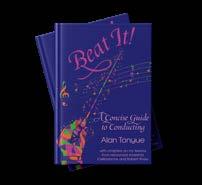
My Time at Kingswood
Andrew Cort (KS 1973-78): I arrived at Kingswood during early September 1973, following in the footsteps of my two older brothers Will (Hillary) and Nicholas.
Will attended Kingswood from 1967-73 and Nicholas from 1972-76. I remember that first year in Westwood well, assigned to Postnett House, we had a small six bed dormitory on the 2nd floor and Keith Duchars was the Housemaster. He was a caring man but had an eye for discipline too. I must admit I found the first six months quite tough adapting to living away from home.
The main memories I have of those first two years spent in Westwood were the intermittent pillow fights that would take place between the two houses, Cusworth being on the next floor. Then there was the play that Keith organised one year, ‘Sweeney Todd the Barber’, a chair had been modified with two hinges attached to the back legs of the chair and the stage. There was the appropriate trap door in the stage for the disposal of Sweeney’s victims, off to the kitchen for ‘pie production’. It was participating in this play which gave me the taste for stage management, an activity that I would participate in through my years at the School.
During the Miners Strikes of 1974, like the rest of the country, power cuts were inflicted on the School. However, undaunted by this Laurie Campbell, ‘Jock’ the Headmaster stated that studies
would continue. Reminiscent of some Dickensian novel we were trooped into the Dining Hall, by candle-light, and sat at the dining tables illuminated by multiple candles for Prep, whilst a master complete in their robe paced up and down the main aisle to keep silence and discipline amongst the pupils.
In September 1975, I moved up to the main school and followed the family tradition of being placed in Hall House. Other than some carpet laid in the middle of the dormitory, I do not think much had changed in 100 years. The winters were cold and the primitive sinks and plumbing would occasionally freeze up, it is no wonder a group of us nicknamed the School ‘Colditz’ after the BBC drama being shown at the time... Roger Austen was the Housemaster and as a teacher and member of staff I got on well with him and I particularly liked his teaching of his subject Physics. When ever possible he would carry out experiments to show/ teach us various facts, from placing two speakers in the main quad, playing a single note through them, and have us walk around the quad so that we could experience the phenomenon of constructive and destructive wave interference, to dropping balls down the main stairwell of Upper, Middle and Lower Houses with pupils placed on various floor landings with
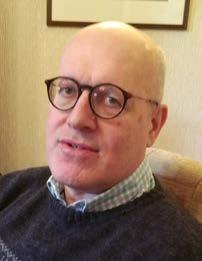
stopwatches so that we could observe and measure the elapsed time for the ball to pass us and then collectively we would work out the effect of gravity and calculate its value from our observations… it was through all of this, plus Mr Garforth for Chemistry and Mrs Lewis for Biology, (where I almost passed out whilst watching a film about kidney transplant surgery). I developed a lifelong passion for science.
With Mr Garforth I remember him well, he told us that he had soaked some cotton wool in nitric acid, dried it out and attached a fuse of magnesium ribbon… he then lit it and with a very loud bang introduced us to the manufacture of explosives by making guncotton – nitrocellulose! I am unsure that a Chemistry teacher would do this now!!
In the 1970’s the School had an observatory half way between the sixth form block
and the all-weather pitch. I spent many an evening with Mr Moody, Mathematics teacher, using the telescope and learning the basis of Astronomy, another lifelong passion of mine.
Of my other teachers two clearly come to mind. There was Mr Stean for History, he had a fantastic ability to make history come alive by the pure enthusiasm by which he taught, armed with his box of multicoloured chalk, his black board was like a piece of art at the end of his lessons with the multicoloured maps of Europe/ UK with large sweeping arrows and illustrations to depict the various elements of his lessons. Mr Kent was our French teacher, I use ‘our French teacher’ loosely. Being absolutely useless at languages, Mr Kent took a remedial class in European Studies (CSE), learning about France with having to learn French. Mr Kent looked the part, with his mass of hair, long beard and a faint whiff of French cigarettes about him. He once brought to class a whole series of French cheeses for us to sample but it was the story of his life during WW2 that I developed a huge amount of respect for him… and I often think of him now. When he was called up during the war he was one of the young men assigned to being a ‘Bevin Boy’, he became a miner for the duration of his service during the war. I live in Fife, Scotland, which is where Mr Kent was posted, working in the mines of Lochgelly, Cowdenbeath and others. He told me all he was issued with was a helmet and a pair of boots, lying on his side in front of a coal seam he would spend
his shift with a hand pick hand cutting coal in constant danger of gas, mine collapse, and other extreme perils. Over the period of 1943-45, 1 in 4 would be involved in a serious accident. Living in the area of Scotland where Mr Kent was sent, I know how tough those communities and the industry must have been.
Laurie Campbell was a strong and respectful man, I warmed to him in many ways, I remember well being taught English by him. The one thing that you did not want to be involved in was reporting at the Headmaster’s house at 7:30 am in the morning where, after what ever misdemeanour you were involved in, you had the pleasure of an early morning run with him. You could not arrive at 7:29am, or 7:31am. It had to be 7:30am or the whole ordeal would be repeated the following morning thankfully I escaped this ordeal.
I left in 1978 with a good set of O Levels and went to a Grammar School in Bolton, Lancashire. But I took with me from Kingswood the ideals of self-discipline, hard work, independence and a sense of ‘duty’. I trained as a Naval Architect and Shipbuilder working in the Defence Industry and was involved in the Type 22 and Type 23 Frigate programmes for the Royal Navy. After a research degree (M. Phil.), in which I developed an AI system for advanced ship design, I left the industry and joined the Offshore Oil and Gas business. I ended up retiring from a senior position when I was 55 having travelled the world and vowed, I would never set
foot in an aircraft again. I then retrained in Holistic health care and became a registered spiritual healer, did a further Master’s degree (M. Litt.) in Contemporary Theology at the University of St Andrews, and now, never satisfied, I am studying for a Doctorate in Divinity, again at St. Andrews. After all this, God willing, I hope to write a number of books. I have and continue to be involved in a number of charities, holding a number of positions within them. My time at Kingswood has acted as a foundation for all that I have done. I often think of my old teachers, particularly Laurie Campbell, and wonder what they would think of where I am now.
Will died in February 2023. He trained in the Industrial Ceramics and was a chief glass designer for a number of companies which all ended up being part of Royal Doulton. With the demise of the Lead Glass industry, Will set up a microbrewery, Enville Ales, one of the first of its type in the 1990’s. From about 2000, he became increasingly unwell and his health started to fail him. He spent his final years living in the small village of Enville.
Nick died in August 2021. After Kingswood he joined the family textile business and ran that until the early 1990’s, he then left and trained as a social worker which took him to the South West and he lived in Exeter. Over 2020 he was diagnosed and treated for leukaemia. He was given the all clear in early 2021, however during July of that year he developed a very aggressive cancer and died only a few weeks after diagnosis.
The Archives
This year Kingswood marks 150 years of the school prefect system.
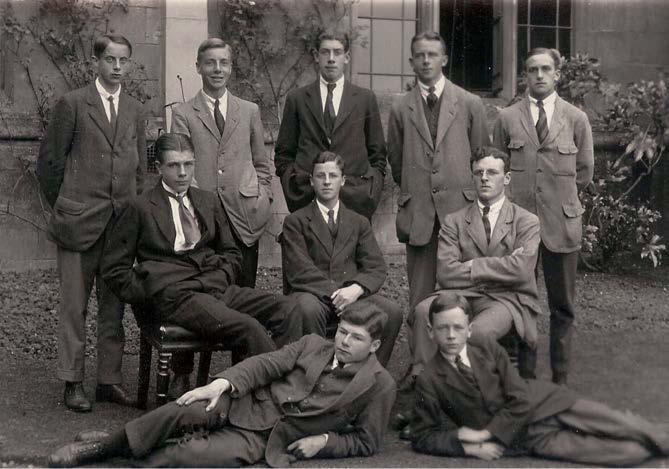
The Methodist Conference appointed a Commission of Enquiry to investigate the education provision at Kingswood School and its sister school Woodhouse Grove School, located near Leeds. One of the report’s (issued in 1873) key recommendations was to introduce a prefect system. This would be created by extending the age of education beyond fifteen; boys aged sixteen and seventeen, “would be capable of setting a much higher moral tone,” (Best, 2023). Thus, the existing system of continuous supervision by masters ceased, which had caused much “misery and the loss of many a master,” (Ives, 1970).
The Commission reported that the prefect system should have the following benefits:
• To encourage responsible behaviour
• To facilitate the concept of serving others
• To encourage the sense of community
It has been said:
“The appointment of prefects and the withdrawal of the omnipresent master were changes happily made under a Headmaster (Thomas George Osborn 1866-1885) who was prepared to trust and support his upper boys.
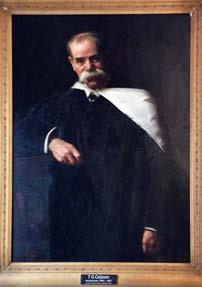
Portrait of Thomas George Osborn M. A. (Headmaster 1866-1885)
Prefects in 1919
… The introduction of a prefect system in 1875 alone made an enormous difference. When some fifty or one hundred boys are herded together within a playground which, though large, is yet limited, some sort of system of self-government must of course spring up,” (Three Old Boys, 1898). “By their sense of honour, their dignity, their scorn of meanness, their strong influence, they had no small part in starting the School on that career of prosperity...”
and A. B. Shaw (KS, 18681876), were specially retained for an additional year, “that under new and untried arrangements, the School may have the advantage of their influence as senior prefects.”
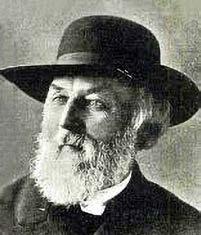
Today, the School gives positions of responsibility to 65 Upper Sixth pupils. These are chosen from each House at the end of the Lower Sixth. Roles include the Head and Deputy Head of School; Head of House, Deputy Heads of House and Head of Boarding; Senior and House Prefects.
Pupils are supported in undertaking these roles and training is provided along with regular meetings with senior staff.
In 1875, eight boys were selected to be prefects. The role of the prefect in the 1870s is described succinctly in the 1898 history:
“But the name of prefect was assigned to those boys whose responsibility it was to turn the stream of popular opinion into worthy channels, and to put down all offences against public good manners. Their existence also relieved the masters of the more irksome parts of “duty.” The foundation of this order was a turningpoint in the general life of the School. The two senior boys, W. T. A Barber (KS, 1869-1876)
The School was fortunate in the Governor (The Rev. John Holt Lord, 1873-1885) and in the Headmaster under whom the new organisation came into effect; it was no less fortunate in its first prefects. By their sense of honour, their dignity, their scorn of meanness, their strong influence, they had no small part in starting the School on that career of prosperity…”.
If you have any archive items relating to your time at school (documents, letters, photographs etc.) you no longer want, I would love to re-home them in the archive here at Kingswood.
Many thanks in advance.
Zoë Parsons (School Archivist)
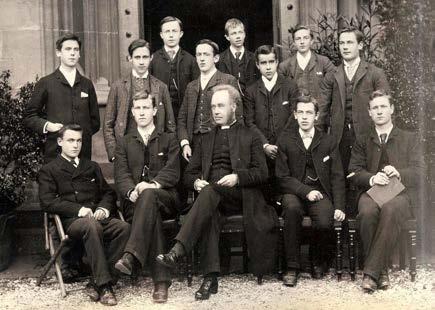
Portrait of The Rev. John Holt Lord (Governor 1873-1885)
Prefects in 1892, with the Resident Governor, The Rev. George Bowden
NEWS
Aiden Heritage (KS 1972-78)
Aiden is the 2024/25 President of the British Ring. One quirky fact about him is he owns around 400 ties and has vowed not to wear any of them more than once during his year in office. He was also once a member of The Magic Square.
As with many magicians, Aidan’s introduction to the hobby came with the gift of a magic set around the age of six, supplemented by occasional television shows by celebrities such as David Nixon, but it didn’t properly take root until he came to Kingswood. He joined the school’s magic club, called The Magic Square. Lots of people attended the first meeting to find out what it was all about and there was an election to appoint a chairman for the society. He tells us that ‘I was the child that the others liked to take the mickey out of, and they thought it would be a great joke to elect me. Well, the joke backfired because I held that position throughout my term at Kingswood School!’
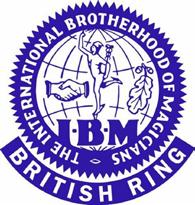
Aidan’s main inspiration in those early years was John Coggan, the teacher who ran the Magic Club at Kingswood. His interest at school was in magic involving matchboxes.
A past pupil of Kingswood, H.C. Soloman was a popular local magician who performed as Solly. He arranged for some of his colleagues to present a magic show for the whole school. He also donated a good collection of magic books. Aiden thinks ours must have been the only school library to have copies of Abracadabra magazine and The Trick Brain, plus a number of other titles. At one end of year event, the club presented a magic show which involved building some props, one of which was a ‘box jumper’ style illusion. They also helped out with a senior citizens group called the Jovial Club. They provided entertainment in the style of an old-time music hall, which gave him more opportunities to perform.
On leaving school in 1978 he started as a children’s entertainer and children and family magic still remain his passion. Throughout his
working life he has combined part-time entertainment with a full-time position as a data analyst, which he adds comes with a pension!
Aidan attended his first British Ring convention in 1980 and joined the society the following year. He has attended all 43 conventions since. He became a member of the I.B.M. Clowns Group, performing as Clown Sparky.
Aidan was pleased to accept the invitation to run the British Ring website in 2017. He found and scanned all copies of the Ring magazines and they now have an almost complete archive. He also runs the Facebook page and posts daily videos.
Aidan lives in Stevenage with his wife Heather and two daughters, both of whom are also members of the British Ring.
Aidan is also a member of The Magic Circle.
He concludes: “I’ve never not had magic in my life. It’s helped to entertain and bring smiles to people –and that’s magic!”
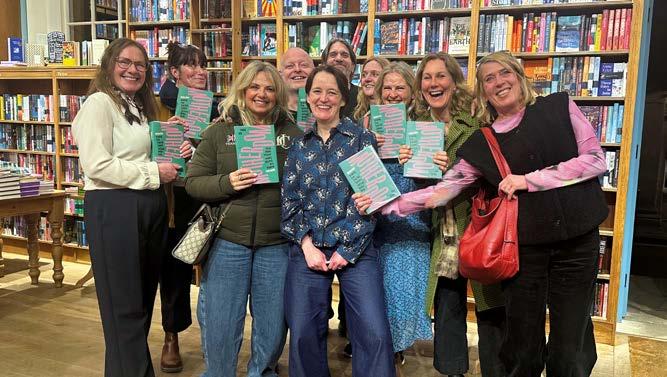
'MOTHERDOM' BOOK LAUNCH
Toppings Bookshop in Bath held an evening with Alex Bollen (KS 1985-90) on Thursday 20 March to celebrate her debut book: Motherdom.
Drawing from her expertise as a researcher and a postnatal practitioner, Bollen writes a fascinating and thoroughly evidenced book on the blaming, shaming and flimsy evidence behind the myths of motherhood.
When Alex Bollen had her first baby, the fear of being a bad mother made her guilty and anxious. A researcher with twenty years’ experience, she went looking for answers. To her surprise the studies she looked at were exaggerated and misrepresented in
"...Bollen writes a fascinating & thoroughly evidenced book..."
the media, forming the foundation for what she calls Good Mother myths. These myths are an assortment of narratives, ideologies and stereotypes, deployed to censure mothers and blame them for every societal ill.
Incensed by the way bad science is used to shame mothers, Alex Bollen decided to set the record straight. With meticulous research and keen insight, Motherdom exposes both the shaky science and unjustified prescriptions about how mothers should ‘naturally’ behave. Competing visions of birth – ‘natural’ versus ‘medical’ – mean women can be criticised whatever happens, raising the odds that birth will be a damaging, even deadly, experience. Mothers are judged and belittled whether they breastor bottle-feed their babies.
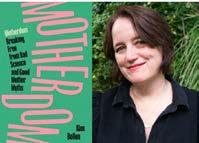
Bogus claims about brain development and dodgy attachment theories mean that whatever mothers do, it is never enough.
Alex Bollen is a researcher, writer and NCT Postnatal Practitioner. She qualified as a Postnatal Practitioner with the NCT in 2012, and became an NCT Excellent Practitioner in 2015. The different strands of her work inform and enhance each other, and the common thread which links them is understanding what makes people tick and how our contexts shape what we feel, say and do.
Emily Hersch (KS 2009-24)
As a member of the ‘Blues’ women’s hockey team, I train four times a week and play matches twice a week against universities and club sides. The time commitment is significant, but I find the structure helps me be more efficient with tutorial work and meeting deadlines. I have got to know so many people from other Oxford colleges from socialising on Wednesday night with the eight men and women hockey teams as well as those playing other sports.
We have performed strongly all season, being unbeaten in BUCS on Wednesdays, coming second in goal difference and (as it stands) first in the South-Central Women’s Premier Division 1 on Saturdays.
The biggest friendly match of the season was the Varsity match against Cambridge on Sunday 9th March. For hockey, playing in this match is the stand-alone criterion to obtain a blue. The blue is the highest honour granted to individual sports people (doing the qualifying sports) at the University of Oxford.
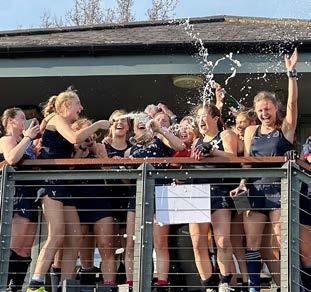
The match itself was thrilling, ending in 0-0 after full time, with several close goals from both teams. After full time, we went to shuffles and took the trophy home early with a 4-1 win. Only our captain had ever won a Varsity match before, so it really was such a special win for the team.
With three years left of my four-year Chemistry degree, I hope to play in this match three more times until I graduate and then play in the alumni game against Cambridge!

Gabriella Cronchey (KS 2007-12)
Since completing an MBA at the University of Bath in 2020, I’ve been channelling my passion for wellbeing into entrepreneurial ventures that aim to enhance the lives of others. My journey began with Vizuri Homes, an interior design company rooted in the belief that our surroundings play a vital role in our overall wellbeing. Working across the South West, Vizuri Homes creates beautiful, timeless spaces that focus on biophilic design principles— bringing the natural world into the home to support the mental and physical wellbeing of the people who live there.
Building on this foundation, I subsequently launched The Vizuri Method, an online wellness coaching program for women. This venture is designed to guide women on a transformative journey, empowering them to embrace holistic wellbeing and unlock their full potential. Through personalised coaching, I help women cultivate a life that’s in alignment with their true values and aspirations.
In addition to the online program, I offer in-person coaching and collaborate with like-minded businesses to host impactful events and workshops in the city. My aim is to create a supportive community where women can come together, learn, and grow as they prioritise their health, happiness, and personal growth. Together, these ventures represent my commitment to nurturing both the inner and outer environments that allow people to thrive.
For more information please visit: www.vizurihomes.com
Bill Green (KS 1981-86)
'Urban Figure' by Bill Green
This sculpture was made for my BA Honours Degree Show in Fine Art: Sculpture at Wimbledon School of Art in 1990 and was sited in it's current position in front of The Art and Design Block at Kingswood in 1991 with the then, Head of Art and Design, Mr Keith Duchars who was my Art Teacher when I studied A Level Art 1984-86. Amazingly the sculpture is still there to this day, thirty four years later. When the two external staircases which had rotted were removed from the Art and Design Centre this set of steps leading to nowhere was left, it was the perfect plinth as above it is a protective roof, the sculpture was set in concrete using steel studding for safety.
At the start of my Degree Course we had The Great Storm of 1987, many precious trees fell, Seven Oaks in Kent became One Oak and so on,
GRACE CARDWELL (KS 2016-23)
Iam nearing the end of my second year of studying Biology at Oxford at Keble College.
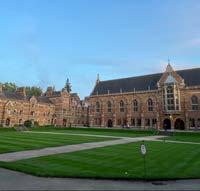
subsequently throughout our course we had a seemingly endless supply of high quality hard woods. The Sculpture Department at Wimbledon had an annual exhibition in Cannizaro Park off Wimbledon Common which encouraged us to make large outdoor pieces that would work in this setting. And so Urban Figure was probably the best in a large series of work I was able to produce at this time, and as far as I know, the only one to survive.
In the magazine at the time, I wrote "Constructed from primary forms relating to those present within an urban environment-office and tower blocks, warehouses, factories etc,: Together these forms have culminated in an object which has the essence of a figure but that does not directly seek to represent a human figure. The two vertical masses which form
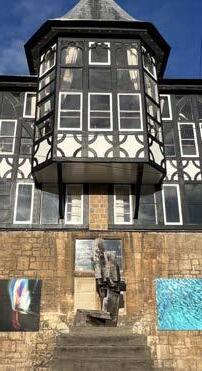
the top half of the work give it a precarious balance, a small steel bracket placed at the bottom of the sculpture allows it to redress this balance." In other words, it looks like it is just about to fall over! This precariousness is intended to gain your attention and add a dynamic element to an otherwise static sculpture.
My time here has brought me so many opportunities both academically, sportswise, and socially. I have been able to learn new and ongoing research from some of the top in the field. Tutorials provide the chance to debate and discuss this research and new ideas with tutors and other like-minded students. I have also had the chance to undertake several research courses in the field, which have been incredible and invaluable learning experiences.
In my free time, I run for the
university athletics team, where I have competed in varsity matches against Cambridge. These matches are so exciting, considering the decades old rivalries, and get very competitive! One of my favourite moments from my time at Oxford is the Oxbridge varsity ski trip, which was such a fun way to meet Cambridge students and have an amazing time with friends.
Overall, I have been really enjoying my time here, and am looking forward to seeing what my third year brings!
Jerry Timmins (KS 1964-73)
2024 saw the publication of my novel An Elusive Truth, which was out in time for Christmas.
It is set in Haiti and tells the story of Lucas, a young and inexperienced journalist, caught up in street protests which are violently suppressed by the army. Lucas is befriended by the revolutionary Marie. She wants freedom. He seeks truth. Together they may have the power to topple a dictator but in Haiti life can be cruelly short. The book is available from Amazon and Waterstones and I hope it reflects well on Ray Wilkinson, who taught me English at Kingswood. He was an inspiration and the main reason I won a place at Oxford University to read English in 1973.
When I graduated, I played drums professionally for a couple of years, having been in a band at University and studied piano and drums at Kingswood. I then joined the BBC as a trainee studio manager in 1979 and after a couple of years I became a

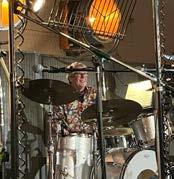
producer. I went on to make many programmes for BBC World Service, producing, presenting and editing.
After launching the BBC’s Caribbean Service in 1988, I transferred to BBC Newsnight TV where I produced and reported during the first Iraq war and its aftermath. I returned to World Service and went on to run all the BBC World Service’s journalism and operations in the Americas and then Africa and Middle East, joining the Board in 1994. Amongst the many services I launched were BBC Arabic TV and the first ever BBC News co-production in the United States called The World
When I left the BBC in 2010 I spent a decade working in countries emerging from conflict, including Libya, Rwanda, Palestinian territories and Sierra Leone. I supported government
"I hope (the book) reflects well on Ray Wilkinson, who taught me English at Kingswood. He was an inspiration..."
ministers and media owners who were trying to improve their media. In Sierra Leone, for instance, we supported efforts to decriminalise libel and ease some of the pressure on journalists. The government passed the necessary legislation in 2020.
I now live in Surrey with my wife and we are watching our two children Adam and Clare forge their own careers. I play drums with three different jazz and rock bands, mostly in the South East of England, and write. An Elusive Truth is my first novel.
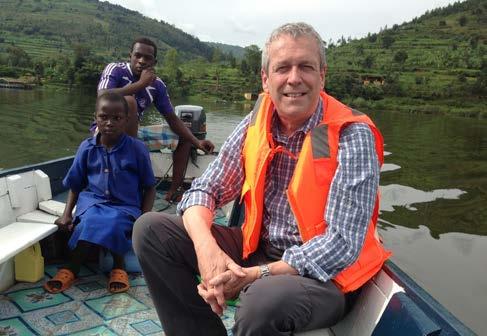
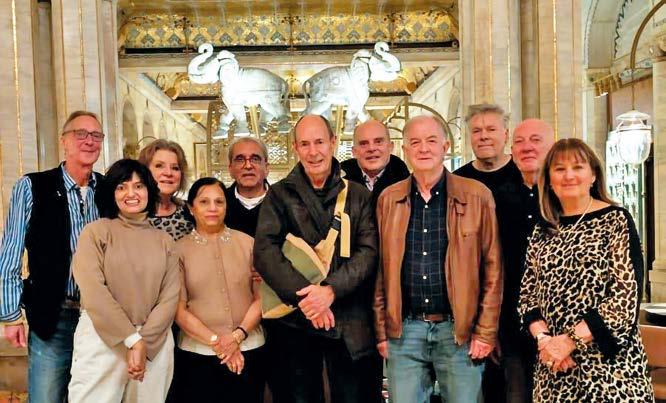
A curry-on!
Kingswood friends from the 1970s welcomed Jim Singapuri, with his wife Kumud and daughter Divya, to a surprise celebration in London.
Jim, on a rare trip from his home in Australia, caught up with some old friends he hadn't seen for 53 years!
It took place in the byzantine splendour of the Criterion Indian restaurant in Piccadilly. The conversation, like the food, was hot, hot, hot!
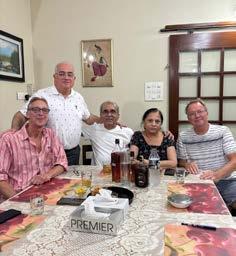
From the left: Mike Gratton (1968-73), Divya Singapuri, Rachel Ashley (née Mountford) (1974-76), Mrs Kumud Singapuri, Dinesh 'Jim' Singapuri (1971-74), Simon Llewellyn (1968-74), Justin Dunlop (1970-75), Jonathan Ashley (1970-75), Tony Clark (1967-74), Jeremy Wimpress (1969-76 and Chairman of the Kingswood Association 2009-13), Mrs Sue Clark.
Jim Singapuri (Dinesh) (KS 1971-74 )
We recently had a Kingswood reunion at my residence in India!!! I flew in from Melbourne, Australia, Mike and Anthony Gratton from the UK and Nader Rastegar from Turkey! What a reunion it was! BTW, that's my wife Kumud in between.
It's amazing, meeting up after such a long time but absolutely no break in our conversations!! As if we left school yesterday! Your best friends are your school friends!
We have now decided to meet up next year in Bodrum in Turkey at Nader's resort-overlooking the Greek islands. (Hopefully!!)
A MUSICAL JOURNEY FROM KINGSWOOD TO THE WORLD OF WEDDINGS & EVENTS
LAURA SEYMOUR, NÉE CROSS (KS 1996-2010)
Music has been an integral part of my life for as long as I can remember, and my journey as a professional violinist has taken me to some of the most beautiful wedding venues and prestigious events across the UK. From my early days at Kingswood to leading a thriving wedding and events music business, my passion for live music has only deepened over the years.
After discovering my love for the violin at the age of five, I went on to study at the Royal Welsh College of Music and Drama, immersing myself in the world of classical music and performance. My career as a professional violinist has since flourished, with my expertise in both acoustic and electric violin allowing me to perform a wide range of music, from timeless classical pieces to modern pop and rock covers.
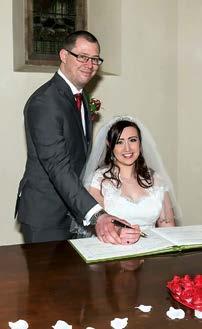
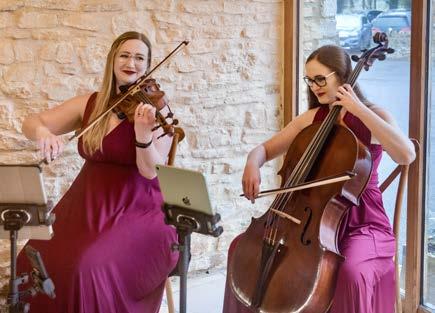
In 2016, my personal and professional ties to Kingswood deepened when Jason and I married at the Kingswood School Chapel. This special connection to the School remains to this day, with Jason working at Kingswood since 2018 and recently being promoted to Caretaker in January 2025. My mother, Jackie Cross, dedicated 30 years to teaching at Kingswood before retiring in July 2024— cementing a lifelong family link to this wonderful community.
Over the years, I have built a reputation for providing luxurious live music for weddings and events, performing both as a solo violinist and as part of my ensemble, Serenity String Duo, which I co-manage with my sister, Katja, an incredibly talented cellist. 2024 was an incredible year for us both, with our performances including 73 weddings, 5 corporate events (including 2 high profile
awards ceremonies), multiple wedding fayres, and a concert. My solo violin work accounted for an additional 32 weddings and events, and I had the privilege of performing at some truly breathtaking venues, bringing unforgettable musical moments to so many special occasions.
The Power of Live Music at Weddings and Events
One of the most rewarding aspects of my career is witnessing the transformative effect live music has on weddings and events. From the moment a bride walks down the aisle to the soundtrack of a beautifully played violin melody, to the joyous atmosphere of a drinks reception filled with lively string arrangements, music truly sets the tone and enhances the emotions of the day.
Unlike recorded music, live performances offer a unique
and immersive experience. A string ensemble can add elegance and sophistication, while an electric violin performance with backing tracks or working alongside the DJ can create a contemporary, high-energy atmosphere. Couples often tell me how the music I play brings them to tears of joy, evokes cherished memories, and makes their wedding day or event feel even more magical. It’s these emotional connections that make performing such a joy for me.
Beyond weddings, live music also elevates corporate events, awards ceremonies, and private celebrations. Whether it’s a grand entrance at a gala dinner or a subtle, sophisticated ambiance at a networking event, my performances bring an extra level of prestige and memorability to every occasion.
Looking Ahead: 2025 and Beyond
As we move into 2025, business is thriving, with a similar number of performances already booked for the year. My solo violin work is undergoing an exciting rebrand, offering couples and event planners even more bespoke and unique musical experiences. Meanwhile, Serenity String Duo continues to grow, with more opportunities to bring our elegant string performances to a wider audience across the South West, UK and beyond.
With weddings and events in high demand, it’s wonderful to see more and more couples recognising the importance of live music in creating a memorable and personal celebration. I’m excited to see where this year takes us and to continue sharing my passion for string music with so many amazing people.
Here’s to another year of beautiful music and unforgettable moments!
If you’re planning a wedding or special event and would love to discuss how live violin music and string duo performances can add that extra touch of magic, I’d be delighted to hear from you.
To find out more please see the following:
www.lauraseymourviolin.com @lauraseymourviolin
www.serenitystringduo.com @serenitystringduo
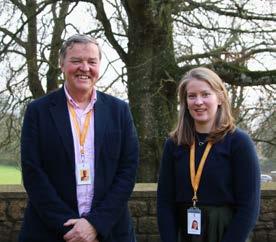
GUY
HINCHLEY (KS 1971-78) & BETH GARNER (KS 2001-11)
Both Guy and Beth are Old Kingswoodians and current Governors. They are our Staff Liaison Governors who come into school to gain a greater working knowledge of the School and get to know all staff, and also for the staff to get to know them and learn more about their role.
RICHARD GARFORTH
(KS 1960-66 & TEACHER
FROM 1973-2015)
Richard sent us this wonderful story;
My daughter Emily was the hero of her flight from Dubai to Sydney in March 2025 when a passenger overdosed on whiskey, became comatose and then inhaled his vomit blocking the airways. The pilot was about to divert to Singapore for emergency hospital treatment when Emily, who works as an Anaesthetist in the Royal Shrewsbury Hospital Intensive Care Unit, responded to a call for a doctor. It took her an hour to revive the man, probably saving his life and to make him comfortable, and advised the cabin crew that it would be safe to fly on to Sydney.
On landing the pilot came back into the passenger cabin to thank Emily and gave her a large bag of exotic cosmetics. He said she had saved the airline £100,000 in avoiding a diversion to Singapore. This added spice to an otherwise boring flight!
OSCAR KENYON (KS 2012-19)
Ever since an early age, way before I started at Kingswood, probably the Ashes of 2005, when I was about four, I have loved playing and watching cricket. That passion, nurtured throughout my time at Kingswood, led
incredible path, one I'm thrilled to share!
After my final year at school, armed with my Level 2 ECB coaching certificate, I embarked on a gap year adventure that truly changed my perspective. Imagine this: stepping onto a dusty pitch in Nairobi, Kenya, invited to coach cricket with the amazing East African Character Development Trust (EACDT). This wasn't just about wickets and runs; it was coaching some of the friendliest and enthusiastic children from the poorest areas of Nairobi teaching and coaching them development characteristics in the classroom then transferring that to the playing field and cricket. Witnessing the pure, unadulterated joy of the game in the hearts of children aged 4-14. Those four months in 2020, from January to April, were nothing short of humbling and inspiring.
Beyond the cricket field I also had time to explore the stunning beaches of Mombasa and experienced the breathtaking wonder of a Maasai Mara safari—a true highlight! But it was the vibrant energy of Nairobi, the bustling city life, and the incredible friendships I forged that truly captured my heart, so much so that I found myself back again the very next year.
Let me tell you more about this unforgettable journey. As fate would have it, the world turned upside down. COVID hit, and my carefully laid university plans were put on hold (how can you do a sports degree online!! I deferred my place another year). Of course, the pull of Kenya, the warmth of its people, and the unfinished work with the EACDT was too strong to ignore. So, in January 2021, armed with
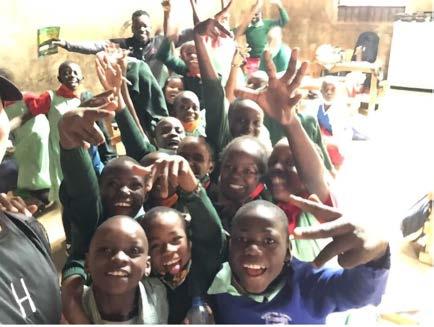
me down an
“...a journey filled with compassion, connection, and the unwavering belief that together, we can create positive change.”
'essential travel' status, I found myself back in Nairobi, ready to continue where I'd left off. And oh, what a welcome! It was truly like coming home. The kids, the staff—their smiles and excitement were the best homecoming gift imaginable. Seeing their progress, both on and off the pitch, was incredibly rewarding. We picked up right where we left off, building on those foundations and creating even more memorable moments. Beyond the cricket field, I reconnected with the amazing friends I'd made the previous year. This time, with my bearings firmly in place, we explored every corner of Nairobi and even embarked on an epic boys' trip to the stunning beaches of Diani, just south of Mombasa. And then there was Amboseli,
where I witnessed the majestic herds of elephants against the backdrop of Kilimanjaro—a sight that will take anyone’s breath away! To top it all off, I had the incredible opportunity to play cricket for the Kenya Kongonis, facing some of the nation's finest, including international players and the current Kenyan captain. It was an absolute honour, and a testament to the welcoming spirit of Kenyan cricket. Every moment was a reminder of the joy, the connection, and the sheer magic of this incredible country.
And then, with a heart full of Kenyan sunshine and memories, I returned to the UK, ready to dive into my studies at Cardiff Metropolitan University in September 2021, pursuing Sports Coaching and Development. But, as you can imagine, the pull of Kenya was strong! After my first year, the thought of reconnecting with my great friends, and soaking up a bit more of that glorious sunshine before the start of second year, was simply irresistible. So, I packed my bags and headed back for another adventure! This time, I travelled to new and exciting places, including the awe-inspiring Lake Victoria, the largest lake in Africa. Watching the sun set over that vast expanse, with hippos gracefully swimming in the distance, was yet another unforgettable moment in a tapestry of incredible experiences. And, well, let's just say my time in Nairobi wasn't without its… unique experiences. I managed to secure a complimentary night's stay in a police cell! (Don't worry, nothing too dramatic—just a little latenight curfew mishap!) cont.
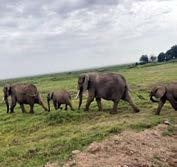
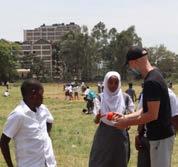
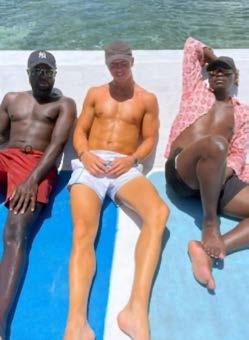
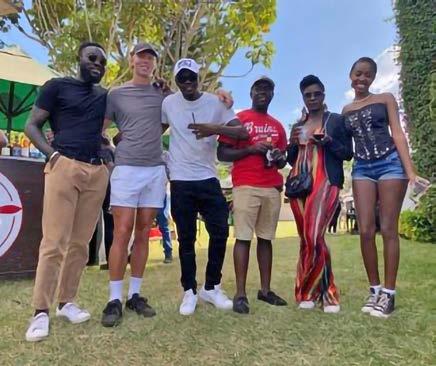
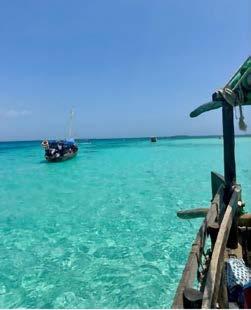
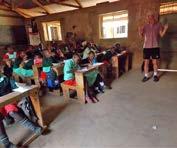

It's a story for the grandchildren! And a testament to the unexpected twists and turns that make life in Kenya so vibrant and memorable!
And so, with my university chapter closed in June 2024, I knew my heart was calling me back to the warmth and vibrancy of Kenya! Saving from a casual summer holiday job, here I am back writing to you from sunny Nairobi! For the past five months, I've been living my dream, working as a freelance personal trainer, and soaking up every incredible moment. The highlights have been spectacular!
Picture this: Christmas Day, again deep in the countryside, up on the shores of Lake Victoria, a New Year's music festival back down on the coast, with the biggest DJs and musicians from Kenya and across Africa, creating an electric atmosphere! And then there was the honour of being a groomsman at one of my closest friend's wedding - a traditional Luo wedding. Immersing myself in the culture, the music, the vibrant energy—it was a truly unforgettable day! Every moment here is a reminder of the incredible connections, the amazing experiences, and the sheer joy that Kenya continues to bring into my life.
And, as if life in Kenya couldn't get any more fulfilling, two incredible friends and I have embarked on a new and fulfilling journey: starting our own charity, 'Friends of Friends,' dedicated to feeding homeless children and families in Nairobi. It's been an incredibly humbling experience. We are brand new, but still so far, we've organised three events, distributing over 350 meals, and marked International Women's Day by creating packages of sanitary products and providing essential shopping for those struggling to access basic necessities. The name 'Friends of Friends' reflects the beautiful community that's grown around us—a network of amazing people, all connected by friendship and a shared desire to make a difference. Our goal is to host a charity event every month, bringing aid and support to the less fortunate within this vibrant city.
If you're in a position to contribute, we've also set up a GoFundMe page (gofund.me/e7aa92e2). Every donation, no matter how small, will directly support food, transport, provisions, and shopping for homeless and refugee children and families.
It's a journey filled with compassion, connection, and the unwavering belief that together, we can create positive change. And honestly, this feels like just the beginning. There's so much more to do, so many more stories to tell. Kenya continues to amaze me, and I can't wait to see what adventures, the future holds!
LUCY TONGE (KS 2012-2019)
Thank you very much for the Gary Best Scholarship which I put towards my medical elective in St Vincent and the Grenadines. I had an amazing 4 weeks learning about medicine and the healthcare system in the Caribbean.
We were based in general medicine clinics in both the private and public hospitals seeing patients of all ages and backgrounds. We had the opportunity to learn about common medical conditions, many of which are seen in the UK, as well as rarer conditions such as tropical diseases.
The healthcare system in St Vincent is very different to the UK, for example there are
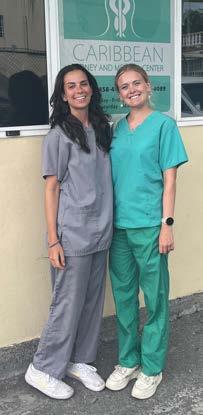
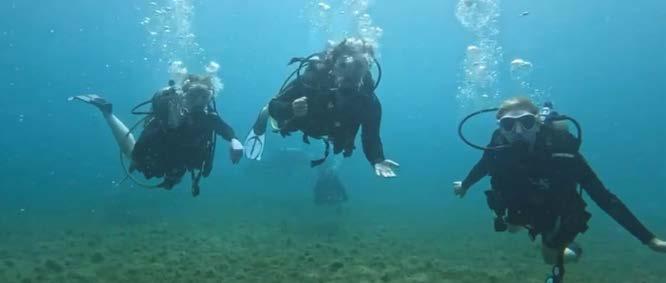
many tests and scans which we use frequently in diagnosis which are not available on the island. This means patients must travel to another country to receive healthcare and for many residents this is not possible due to the costs attached. For example, there was no CT scanner on the island. We use a CT scanner for many reasons, frequently in A&E departments for diagnosing head injuries and strokes. This means if a resident on the island was suffering from either of these they would have to fly out to Jamaica or even up to the USA for scans and treatment.
The Grenadines are a collection of very small islands around St Vincent. Many of the doctors we spoke to would travel to the different islands once a week to provide healthcare to people living there. Occasionally doctors from America would visit St Vincent to perform complex surgeries to those who needed it, through a fund set up to help the Caribbean islands.
While chatting to the doctors we found it is common for people to present with tropical diseases, particularly in the wet season when the water
can become contaminated. We saw a couple of patients with haemorrhagic dengue fever, one a young boy in clinic.
This is a severe complication of a virus spread by mosquitos which can then affect the blood. The boy was rushed to hospital for tests and treatment. We learnt one of the treatments often given is papaya leaf extract. This helps to stop any internal bleeding caused by the virus. Herbal remedies were commonly used in the Caribbean as they were cheaper than medicines. The cost associated with healthcare was a huge factor for many islanders who could not afford to see a doctor or pay for medications. This resulted in patients not taking medications for many common conditions such as high blood pressure and diabetes and so presenting to the doctor with complications from these.
Whilst living in St Vincent we enjoyed exploring the island, relaxing at the local beaches and trying the traditional cuisine. Some of my favourite trips included climbing La Soufriere, a volcano in the north of the island, and scuba
“...very lucky to be able to spend time learning about healthcare in such a beautiful country.”
diving over the reefs where we saw many different types of fish and coral. We also visited the Grenadines where we had the chance to swim with turtles in a marine wildlife area, and spotted a sperm whale on a Pirates of the Caribbean boat trip. We experienced traditional food, dancing and singing on their national Hero’s day - celebrating the local communities.
We were very lucky to be able to spend time learning about healthcare in such a beautiful country and be welcomed into the local communities of St Vincent. Thank you again to Kingswood for the Gary Best Scholarship.
ROGER CLOUGH (KS
1952-61)
Now an established resident in the land of old age, I am exploring Oldenland, the title of a book I have written that was published last month.
Ifind myself reflecting more often on those days so long ago at Prior’s Court and Kingswood. As a 10 or 11 year old I recall a long walk on a Sunday afternoon with a group of friends on a main road (was it Oxford Road?), the dawning realisation that we would be late back, and we each reset our watches thinking somehow we would convince the staff that we all happened to have made a mistake with the time. On another occasion, having been asked to volunteer for an activity by headmaster Maltby, I was one of a group having the rare excitement of being towed round in the snow on a huge piece of plywood behind his car.
Some years later, I picture myself walking round the Kingswood grounds with a friend Robert and being asked what I wanted to do - the sort of question that grandparents would put to you. To my embarrassment then, and indeed today, I responded that I was interested in becoming a medical scientist. I had no idea what I wanted to do, knew nothing about the job, had listened to my mother telling me about the fascinating work of someone she had heard about who was changing the treatment of some disease or other. I look back now at that young person, me on a journey to the me I am today, and would love to have conversations with him about hopes and
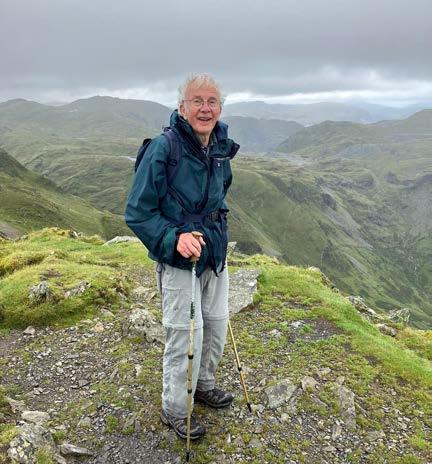
“My book is a reflection on old age.”
dreams, reality and life. I remember another dream at 16 or 17 that I would write a great novel on a Greek island. Greek islands have figured prominently over the last 30 years but only as holiday destinations for swimming, walking, reading, tavernas.
‘Tiptoeing or blundering, I have moved into Oldenland, the country of old age’, is the first sentence of the book, and I remember Michael Bishop, perhaps with a group of us in the sixth form walking down to Summerhill or in a comment on something I had written, stating how important it was to start an essay with a telling phrase.
I have not been someone who has returned to old boys’ events, other than a hockey match a year or two after leaving. Now I find myself dipping into old school magazines in the online archive. There are references to me involved in this and that, but it’s the ones about school games that I find most surprising. Did I ever read these sharp appraisals from Ray Wilkinson on my hockey?
“Clough was always a tireless worker, his form fluctuated but at his best he was capable of good constructive play”.
“Clough took happy advantage and scored three goals” and
then another occasion when we won 11-0 and I scored another hat trick. Or from Billy (was it Bill?) Roche on my tennis? “The second pair Clough and Mules never quite produced the results of which they appeared capable. Clough’s forehand was strong his backhand and service more controlled but too often he fails to put away the decisive smash or high volley”. I look back on my life, the ups and downs, tireless, form fluctuating, sometimes scoring goals, sometimes, oh too often, failing to put away the decisive smash.
“I look back now at that young person, me on a journey to the me i am today...”
My book is a reflection on old age. In part drawing on knowledge from research over a work lifetime into the lives of older people, in part capturing some of the understanding I have from novels; alongside this, I reflect on the last years of my father’s life, when he died at 101 the last Methodist minister ordained as a Primitive Methodist. Now I muse on my own ageing and those who live around me in our retirement village in Darley Dale. Once I studied the land as a scientist, now I walk the fields like a farmer, knowing more of the contours and of the environment that helps crops to flourish. “How,” I ask, “do we learn to
actually be old?” Where has our picture of old age come from? How do we spend our later years in a meaningful way that makes sense of who we’ve been and who we are now? Inevitably life is closing in - I look out of our window at a former Primitive Methodist chapel that is up for sale, musing on how we could transform the place, at the same time as I know that such enterprises are no longer for us. I search for answers to my questions, not in blithely positive denial of our physical and cognitive decline, but somehow in finding an acceptance of who we now are, and in discovering how not to lose who we have been and in discovering my self in old age.
“What was it like at school?” we may be asked, or indeed ask ourselves. Memories of the mundanities of daily life: the clean clothes laid out twice a week in those bundles on our beds; my dislike of going to the barber who came to cut our hair, never knowing what to ask for, and of the time when I cut some of my own hair off to avoid the occasion and then had to live with my strangely cropped hairstyle. A memory of Headmaster Sackett meeting every boy for a review, I think at the end of the autumn term, and an occasion when he talked with me of the merits of impromptu prayers as against ones that had been crafted. Mentioning his name brings back another time when I was walking down to Bath and he stopped in his car to give me a lift. I had catarrh, and I was going to buy some Mentholatum, a variant of a vapour rub like Vick, and he questioned me as to whether
this was addictive. There was the excitement of the unpredictability of whole holidays - a day when, with no warning, there were to be no lessons. A friend lived in Bath, and I recall times of cooking sausages on a primus stove - though I am no longer certain which memories are to be trusted.
When I look back to school days, or indeed to the much younger Roger and the numerous manses where we lived, much of what comes to the surface seems haphazard and inconsequential. Such memories sit alongside the deeper aspects of beliefs and values, features that are the building blocks of me. Reflecting on school days takes me back to times so long ago, and I am sent in unexpected directions. I remember the hymn we sang on the last day of the school year, words I may not have thought about for 60 odd years: ‘Lord dismiss us with thy blessing/Thanks for mercies past receive… By thy kindly influence cherish/ All the good we here have gained… Let thy Father hand be shielding/All who here shall meet no more’. And now I once again give thanks for mercies past received and contemplate living in the twilight years and the time, not so far away, when we shall meet no more.
I look ahead, to the learning of how to live with the potential of increasing frailty to body and mind, holding to a conviction that whatever happens, I am still me.
'Oldenland,
A Journey in Search of the Good Last Years' is published by John Murray.
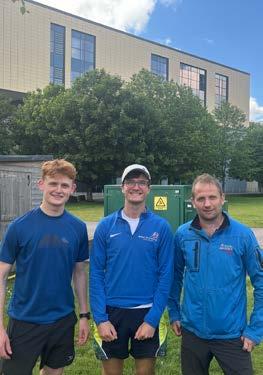
TONY DEYES (KS 1954-63)
Tony says: I have always enjoyed writing and story-telling. At primary school I was sometimes asked to read or tell stories to the class; at Kingswood I won two essay prizes; during my career I published more than 30 articles in academic journals and magazines (including “The Big Issue”!).
Bedtime stories for my children often started with a question: a big favourite were the willowpattern plates: ‘where are those three men on the bridge going?’; ‘what adventures await in those mountains?’ The same is true of my “Lightbulb Family Stories”. The questions in the titles relate
GEOFF ELLIS (KS 1987-94)
In June 2024 Kingswood Old Boys made up much of the team which put on the Bristol Orienteering Klub (BOK) South West Sprint Orienteering Championships at Bath University.
Two separate sprint races, one in the morning, one in the afternoon. Overall results is the accumulation of times from the two races. Eligible runners from SWOA clubs compete for the South West Sprint Championships. The overall results also count to the SEOUL league. Both races are BO ranking.
Olly Tonge and Jim Bailey had planned a formidable set of courses for the morning and afternoon sprint races that thoroughly tested some of the best orienteers in the country and drew much praise from myriad competitors.
My contribution as Controller was minor as Jim and Olly had done such a good job.
to the world of nature: “Who is the Man in the Moon?”, “What Makes the Waves Come and Go?”, “Why do Leaves Fall off the Trees in Autumn?”.
After a fantasy story “Mr Lightbulb” gives the real answer to the question, and helps his children Brightie, and Ray (and hopefully our young readers – ages 5-10) understand the importance of the theme for the future of the planet.
The books are beautifully illustrated by Anne-Louise Richards. Three will be selfpublished this year, but we shall be looking for a commercial publisher as the series progresses.
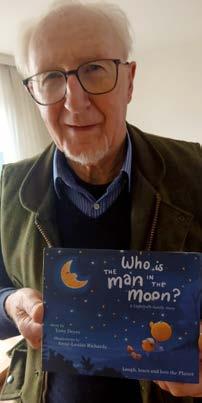
The first book, “Who is the Man in the Moon?” is available now and can be bought directly from me for £10.99 hard cover, £7.99 softcover including postage. If you would like to buy one, please send me an email (deyesaf04@gmail.com) with your postal address and I will send you my bank details. £2.00 from each sale will go to the Kingswood Bursary Fund.
ROSE BATES (KS 2007-22)
Iam currently spending the year at university in Montpellier, in the south of France, as part of my French and History degree at Edinburgh. So far it has been an incredible experiencemy French has improved greatly, I am loving the sun and I have met a wide range of lovely people.
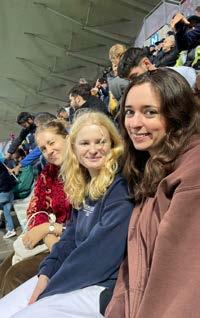
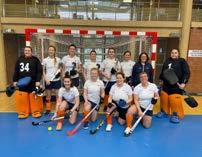
A highlight of mine, linked to my time at Kingswood, has been the opportunity to play for the local indoor hockey team in the Nationals 1 league, travelling around the country to compete at the weekends. The level of hockey has been challenging but very enjoyable and I've been able to pick up lots of quirky sporting traditions in the eveningsincluding le paquito!
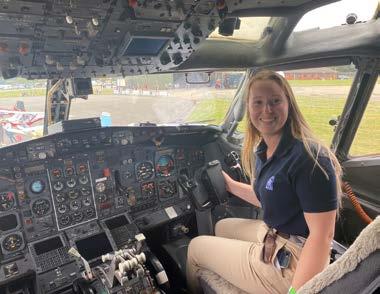
FROM APPRENTICE TO TECHNICAL LEAD:
ALEXIA’S RAPID RISE IN ENGINEERING
ALEXIA WILLIAMS (KS 2016-18)
Since leaving Kingswood school in 2018, Alexia has achieved remarkable success in the engineering sector. Studying Maths, Physics and Product Design during her time at Kingswood, she was awarded the John Allison Memorial Award for Design and Technology, a recognition of her passion for innovation and problem-solving. This passion led her to pursue a Degree Apprenticeship in Aerospace Engineering with Rolls-Royce – a decision that provided both academic qualifications and invaluable industry experience.
In just six years, Alexia has progressed to the role of Through Life Technical Lead at Rolls-Royce, ensuring complex engineering assets remain operational and efficient throughout their service life. Alongside this, she is committed to shaping the future of engineering skills and education. She now serves as a Trustee on the board of Enginuity, a multi-million-pound charity focused on reducing the skills gap in UK engineering and manufacturing, and as a Non-Executive Director for EAL, the UKs leading awarding body for engineeringrelated qualifications.
Her contribution to engineering and apprenticeships have been widely recognised, with 14 national and regional awards received over the past two years. Alexia’s journey highlights the impact of apprenticeships in accelerating careers and the importance of lifelong learning in an evolving industry. Through her achievements, she continues to inspire future generations to explore opportunities in STEM and make a lasting impact in the engineering sector.
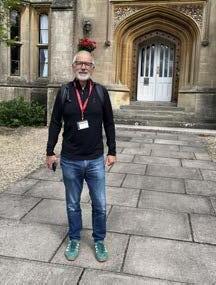
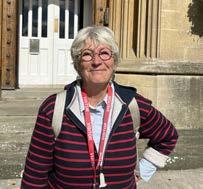
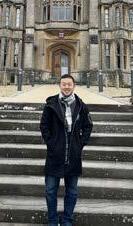
It has been fantastic to see so many Old Kingswoodians visiting Kingswood over the last year. Some of them are shown below. If you would like to visit, we would
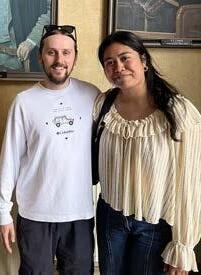
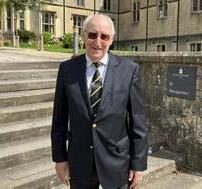
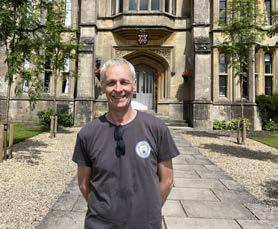
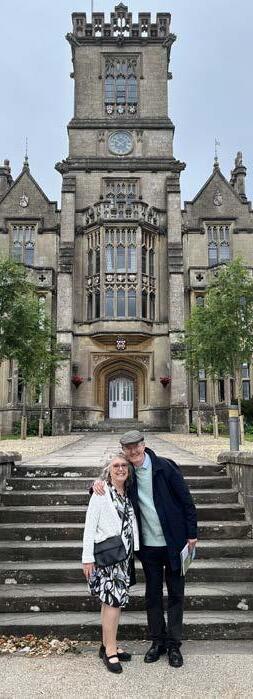
1. Mark Doty (KS 1971-73)
2. George Bianchini (Grandson of Laurie Campbell) and Ashley
3. Karin Wijnand (KS 1976-78)
4. Roger Greeves (KS 1955-62)
5. Nara Youn (KS 1997-2003)
6. Martin Price (left KS in 1977)
7. Richard Cork (KS 1960-64) and Vena Cork
In Memory of
Our thoughts are with the families and friends of the following Old Kingswoodians and former staff whose passing was reported in the last year.
Philip Beale
Martin Boyns
Ivor Colville
Stephen Grieves-Smith
John Carruthers
David Reed
Peter McNeal
John Horn
Michael Flint
John Lewis
Terry Brown
John Badcock
Adrian Aylott
Arthur Fearn
Michael Dodds
Christopher Treves Brown
David Bott
David C Lane
Timothy Stones
Ian Kirtley
Neil Ashley
Malcolm Bailey
Geoff Sloan
Andrew Wyatt
Martin Rushton
Stephen Eddleston
Sevrin Caswell (Claire Wright)
Derek Edwards
Ruth Gillies
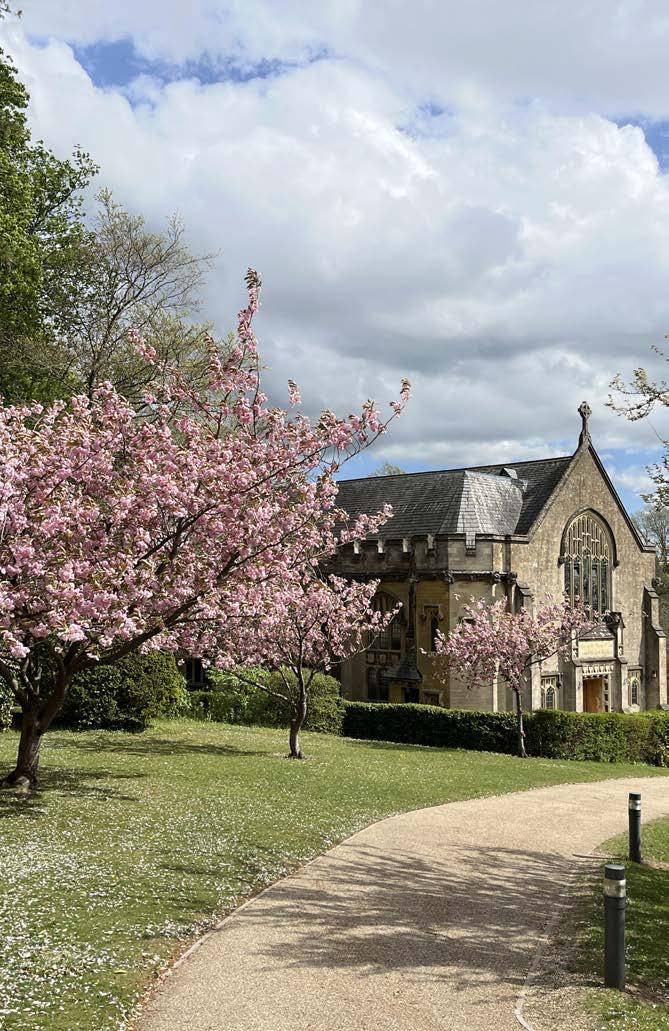
KS 1934-43
KS 1936-45
KS 1937-45
KS 1939-45
KS 1943-50
KS 1943-51
KS 1944-51
KS 1944-52
KS 1947-50
KS 1947-56
KS 1948-55
KS 1948-56
KS 1949-56
KS 1949-57
KS 1951-56
KS 1951-57
KS 1951-58
KS 1951-61
KS 1956-64
KS 1957-64
KS 1960-66
KS 1961-66
KS 1961-69
KS 1961-69
KS 1966-74
KS 1980-87
KS 1994-2001
Community Supper Friend
Former Governor/ Former Parent
OBITUARIES
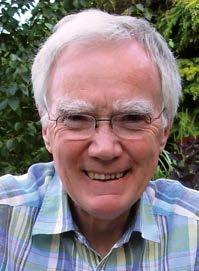
NEIL ASHLEY (KS 1960-66)
Neil’s early years were spent overseas, as the son of oil company ex-pat. parents. He first met his father in Kuwait in 1947, having travelled out by flying boat with his mother when just a few months old. The family initially lived in a tented oil camp, before moving to more permanent housing.
Company moves then took them to Colombia, where he was home schooled by his mother, and to Borneo, where he attended company schools, flying home on the company plane at weekends at just eight years old, an experience which sparked a lifelong interest in aviation.
These early adventures gave him a global perspective that influenced both his personal and professional life.
(His parents continued to live and work overseas, with a final posting to India during Neil’s university years).
Neil returned to Prep School in the UK and a scholarship to Kingswood School in 1960. In 1966 he won a place at Wadham College, Oxford to read Classics and Philosophy (Lit. Hum.). He counted it a great privilege to have been educated in two of our most beautiful cities, which fed both the mind and the soul.
At Wadham, while enjoying the “benefits of a classical education” which “teaches one how to think” Neil was President of the JCR and Captain of Rugby XV. He also met his wife-to-be, Frances (Modern Languages, St Anne’s College), and the two formed many friendships which have sustained them throughout their lives.
In 1969 Neil joined Unilever plc as a graduate management trainee, beginning a career in marketing which took him from Birds Eye Foods (often testing new products on his flatmates!) through many household brands to CEO of The Sellotape Company (1991-2003).
He set up his own marketing consultancy 2003-14, and in 2004 also became a volunteer business mentor for the Prince’s Trust at HMP
The Mount, Herts. In 2008 he joined the committee of HACRO (Hertfordshire Association for the Care and Resettlement of Offenders) to act as a link between The Prince’s Trust and HACRO. He was elected Chairman of the Trustees 2015-19.
Neil was a firm believer that “everyone deserves a second chance”, and found HACRO’s work in helping ex-prisoners transition back successfully to society very rewarding. During his time with HACRO, he helped expand their activities from those of a small volunteer charity into a mature organisation, able to focus on its core mission with a sustainable funding stream, paid staff and an excellent profile in the Herts criminal justice community.
Personal testimonies from ex-offenders whose lives had been turned around gave Neil a satisfaction as deep as any in his professional career.
On the home front, Neil and Frances developed an early love for trekking in high places, both before and after the arrival of their two sons, Thomas and Nick. Retirement brought the opportunity for further adventurous holidays worldwide, and many visits to Japan, where their son Nick and family had settled.
However remote a destination Neil could connect with local
people through his own lively interest in his surroundings, but especially through shared interests – football being the best universal currency!
In October 2019, shortly before a planned trip to Tibet, Neil was diagnosed with cancer, and a few months later the Covid 19 pandemic was declared.
These events put a lasting stop to Neil’s travels, and the beginning of a more challenging journey. During the next five years he fought a courageous battle with grace, fortitude and hope, to the admiration of his medical team, friends and family. He continued to follow and debate politics incisively, pursue his interests in aviation, history and photography, and, above all, to write and produce exquisite photobooks for his adored granddaughter, Emily.
Neil died peacefully at home with his family on 21st December 2024, to the end a gentleman and an inspiration to all who knew him.
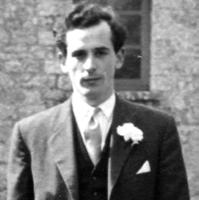
on March 23rd 2025 shortly before his 90th birthday.
Keith was born in 1935 in India of Methodist missionary parents. Our father, Rev. R J Brown, was based in Barrackpore, just outside Calcutta, but Keith, his health affected by the heat of lowland India, went, at the age of 5, to the cooler climes of Darjeeling, to Mount Hermon Boarding School.
In recent years, he and I often shared our memories of life in India – positive and good. But one incident among many stands out. When we were playing on the verandah of our bungalow one day, a cobra slithered up the steps. Fortunately our father was there, and fortunately so were his golf clubs: also fortunately he was a good enough shot to take the head off the cobra, otherwise we might not have lived to tell the tale.
We all returned from India as a family at the very end of the war, in March 1945. We lived for a time in Bristol, then moved to Portishead, before our father went back to India in 1947.
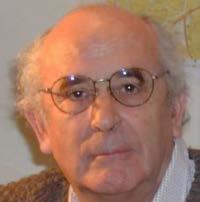
hands – and with his plastered arm in a sling!
He won a scholarship to Pembroke College, Cambridge, to read English. Shortly after graduation, he married Gillian Read, and took up a post with the British Council in Uganda. From there he moved to teach at the University College of Cape Coast in Ghana. On returning to Britain in June 1964, he was appointed Lecturer in General Linguistics at Edinburgh University. He went on to be awarded his Ph.D. in linguistics in 1972.
(PC 1947-48; KS 1948-54)
It is with great sadness that I have to record the death of my brother Keith Brown,
The same year, Keith got a scholarship to KS and went initially to PC, then on to KS. At school, he did well academically, ending up reading English at ‘A’ and ‘S’ Levels under Bill Fisher. Among his non-academic achievements were winning the Punshion Reading Prize, and giving a memorable performance as Lady Macbeth, directed by Michael Bishop. Another memorable non-academic achievement was his being ‘spoken to’ by a police officer, for riding his bike down Lansdown, no
In 1984 he moved to Colchester, to the University of Essex, as research professor in the Department of Linguistics. Finally, he was appointed senior research fellow in the Research Centre for English and Applied Linguistics at Cambridge University.
He held visiting professorships at the universities of Heidelberg, Vienna and Dusseldorf. He became President of the Linguistics Association of Great Britain, President of the Philological Society, and he chaired the Linguistics Committee of the Subject Centre for Languages, Linguistics and Area Studies.
He was author and co-author of numerous works on language and linguistics,
E KEITH BROWN
and Editor-in-Chief of the 12-volume Encyclopedia of Language and Linguistics, published in 2006.
In declining health, he moved with Gill in to Arlington House Care Home in Cambridge, and after a short period of ill health he died in Addenbrookes Hospital on 23rd March.
He was full of life, and enjoyed the absurdities of life. He had many an excellent tale to tell, he was a very good cook and a lover of fine wines. His sense of fun was shown in his choice of the Processional and Recessional music for his funeral service: Louis Armstrong’s version of ‘It’s a Wonderful World’ to open the service, and Morecambe and Wise ending it with ‘Bring Me Sunshine’. He is survived by his wife, his 3 daughters, his brother, Dick (PC and KS 1949-‘59), and his large extended family. He will be sadly missed.
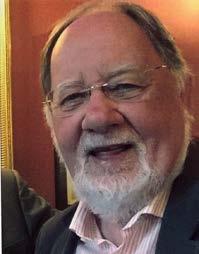
PROF. PAUL TYNDALE BROWN (KS 1952-58) Hall House
milestone, I thought that I should make a start on sorting out an accumulation of personal papers and memorabilia. I gradually assembled a list of the dates, circumstances and events of my life. It brought back memories of the many places where we as a Methodist Minister’s family had lived in as we moved around with Dad’s appointments, which was for us a normal way of life. From Paul’s unexpected birth 40 minutes after me in Bradford in 1939, to Sheffield in 1940 (where we were bombed out and evacuated to Cleveleys) then to Middlesborough in 1942, then Chester-le-Street in 1947 until we arrived in Raynes Park, Wimbledon in 1950.
Then aged 11, Paul and I were ready to start secondary school. Two years at Emanuel School, Wandsworth, followed with taxing daily return train journeys. And so, aged 13, we went in 1952 as boarders to KS for the next six years. Staff members Trump, Dakin, Arnold and Steane made us feel welcome. Academically, Paul chose an English and Classics route whereas I went for Science and Maths. Our friends and activities inevitably differed and gradually we became less ‘the twins’ and more just individuals. This was accentuated in 1958 by our choices of universities. Whereas I went to Imperial College, London, Paul chose to read psychology at Durham for his BA and Postgraduate Diploma in Psychology. He soon gained his PhD from the University of Leicester.
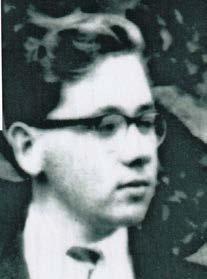
after Margot’s sad, early death, Paul married Barbara Cottman and had another son, James (KS 1990-97).
A couple of years ago, having already passed the unimaginable 80-year
His first marriage, to Margot Meadley resulted in the birth of three sons, Jonathan, Tom and Matthew. Some years
Paul tended to keep his activities close to his chest and from this time onwards I began to lose track of what he got up to but had glimpses through occasional family gatherings and celebrations. For the benefit of our offspring, I had prepared a couple of A4 sheets covering my life history, and sent a copy to Paul suggesting that he might do the same, and let me have a copy, too. Paul’s response came after a couple of weeks, but it was 13 pages(!) of close-typed listings entitled ‘Curriculum Vitae’ as if for a job application. I was amazed at his output and achievements. A summary doesn’t do it justice, but to give a flavour there are listings of professional attachments, including several professorships, chairmanships, appointments as a Director, Trustee or Adviser to multiple organisations throughout the world, mostly relating to Applied Neuroscience, looking at how we create, allow, direct, and shape our energy individually and in
Paul, 1958
relationship with others, involving brain activity, behaviour and psychology.
He was also active in the estate management body for Lord De L’Isle at Penshurst Place in Kent. He had fellowships, for example, at the Royal Society of Arts and The Royal Society of Medicine, a lectureship at The Royal College of Defence Studies, and was a JP for 11 years in Highgate and Marylebone. As if all this activity was not enough, he somehow found time to write eight books, ranging from ‘All the Brains in Business’ to ‘Treat Yourself to Sex’, plus about 20 chapters in books by others and twice as many in professional and management journals and almost as many formal communications to a worldwide network of organisations all relating to neuroscience.
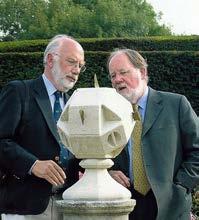
A great deal of his time in his later years was spent in the Far East where he was involved with Vietnam Veterans and Vietnam Youth Forum. He was Chairman and Executive Director of ION Consulting International based in Vietnam.
Amongst all this activity, he moved to Laos and later married Ketta Phathammavong and supervised the building of their home near to Ketta’s family.
Paul told us of his health problems developing late in 2021 starting with a painful, but partial (but also thankfully short-lived) paralysis called Guillain-Barré Syndrome. In August 2022 he and Ketta had to cut short a long-planned visit to UK and Ireland due to Covid and exhaustion only to learn later that year that he had stage four bowel cancer. Nevertheless, in spite of on-going treatment, he and Ketta managed another trip to UK in October last year, and amongst other things, hosted with us a gathering of a small number of friends at The Ivy restaurant in Bath. This was the last time I saw him, and he appeared in good spirits and in better health than was to be expected. It was not very long after he had returned to Laos that photos sent via Facebook showed a worsening of his condition. Sadly, he died earlier this year on 24th February. His youngest son, James was able to travel to Laos arriving soon afterwards and was a great ambassador for the family and supporting Ketta during Paul’s subsequent highly ceremonial funeral and cremation.
A memorial gathering was arranged in London in mid-April by one of Paul’s professional friends. It was at The Reform Club in Pall Mall where Paul had been a member for many years. My wife, Jen, and I were able to attend with James and our younger brother Peter with his son Oliver. Around 50 of Paul’s colleagues and acquaintances were there and several very impressive tributes to Paul were made, covering all aspects of his life and work. A family gathering was held in Melton Mowbray a few weeks later hosted by
my elder sister Margaret, me and younger brother Peter at which we were able to share with other relations not only our grief but also many happy memories and appreciation for a very productive life.
Amongst the papers that I received from Paul was this surprise – a poem written by him in 2014:
Death does not triumph over love
I had a nice presentiment of Death
Walking, though quietly, beside me
And yet a little way apart, not quite engaged
As if he came to say:
“Not yet, but breath
Is something that one day gives out, and then You will be as it is with other men
Returned to earth; a memory that fades
From others’ minds.”
“Faded?” I wondered. Is that all it’s meant –
This life of three score years plus ten
That has already passed its mark; and when Breath ceases, are we lost to others’ minds?
Not so. Most definitely not. Death’s certainty
Can sharpen memory, not make it fade.
The pain of loss may go, but not the love
That made life worth the living.
“Forgotten not, then?” No, for all the giving Each to other, love unbounded, lasts –
Perhaps not bodily, but in the spaces
Where connection’s known; In connectivity no fixed cont.
Penhurst Place, 2009
connection lies But in the sum of all experience
That is transmitted by experience
That only life well loved makes possible.
In circularity lies certainty. Life cycles do not just begin and end: They come from deep connection and return
To others through the same relatedness
That made the first connections possible. It was not sin in Eden but the start
Of infinite belonging. So we know
We do not fade. Death does not triumph so.
David M. Brown (KS 1952-58, Head of Physics 1985-99, Archivist 2000-08)
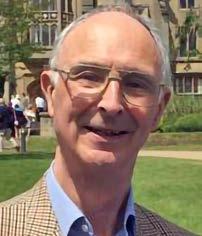
(KS 1951-56)
Michael (‘Mike’) was born in Newcastle-upon-Tyne on 9 September 1937 to mother Muriel (‘Pearly’) and father Denis who was a solicitor with Gateshead Borough Council. The outbreak of World War 2 in 1939 meant
that Denis joined the Royal Navy Volunteer Reserve and the family adopted a peripatetic lifestyle moving, when possible, near to where Denis was based around the coast of the UK. In 1943, Denis was posted to Cardiff to establish an Officer Training Unit at the University and Muriel and Michael were able to join him there.
Life was never calm for Michael because settling in Cardiff meant the arrival of a brother Gareth in 1943 and sister Philippa in 1944. Two more sisters, Jaqueline and Stephanie, followed the end of WW2 making Michael the eldest of 5 children. The family moved to Penarth in 1947.
Michael attended Westbourne House Preparatory School in Penarth and enjoyed scouting with the Troop attached to Trinity Methodist Church which the family had adopted as their second home. When not playing sport or scouting, Michael discovered the joys of steam engines at Penarth Station and the Great Western Railway Signal Telegraph system. This was thanks to a neighbour, Mr Hughes, who happened to be the Penarth Signalman. Mr Hughes was a great discovery because he had studied Latin with the Workers’ Educational Foundation and helped with his Latin prep!
Michael joined Hall House at Kingswood in 1951 and, like other new-joiners, found meeting with Headmaster Sackett rather overwhelming. He was reassured on discovering the great man’s nickname was ‘Bucket’. Sport and academic demands did not leave much room for home-sickness and he much
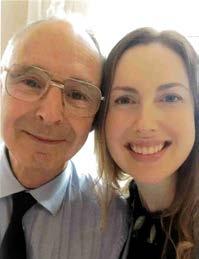
enjoyed rugby, hockey and cricket on the Upper, weather permitting. Contemporaries, whom he got to know well through sport, included John Badcock, Rod Kedward and Graham Heywood in a successful First XV. Michael was appointed Head of Hall House for 1955/56.
Kingswood enabled Michael to spread his wings in many ways, particularly after joining Kingswood’s Air Training Corps which offered air experience flying from Filton Airfield and occasional flights from RAF Colerne. He continued his flying experience with the University Air Squadron when he took a place at St Catharine’s College, Cambridge to read Electrical and Mechanical Engineering. His place was sponsored by Metropolitan Vickers, the leading UK manufacturer of electrical switchgear and this set the direction for his working life.
It took Michael a while to acclimatise to the world of heavy engineering in Trafford Park, Manchester. He was relieved to take up an engineering post in Liverpool at the CEGB Clarence Dock Power Station and then as
MICHAEL EDWARD DODDS
Mike with his daughter, Annabel
an engineering manager at the Magnox Nuclear Power Station at Wylfa, Anglesey. Having travelled widely in the UK, he was happy to settle in Amlwch where he became part of the community, working as a volunteer systems engineer for a local museum. He used his considerable collection of tools to offer repairs for his neighbours’ bicycles earning himself the nickname ‘Mike the Bike’.
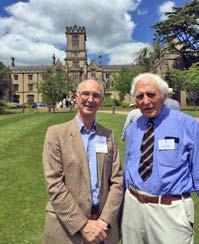
Michael lived life with a joy of learning, kindness and dedication to family, friends and community. In retirement, he spent much time researching and cataloguing the history of the family, which provided a rich knowledge of Northumbrian origins. He also made several visits to see his daughter Annabel in Sydney, where he made new friends and enjoyed exploring.
Michael died suddenly in Bangor Hospital on 21 August 2024 from a heart condition which became evident only as he was replacing the hot water tank in his house; always the engineer! He is survived by Annabel, an Emergency Medicine Doctor, and his four siblings.
Gareth Dodds (KS 1957-62) & Annabel Dodds
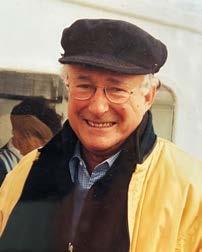
Michael Frederick Flint was born at Epsom on 7th of May 1932, the son of Frederick Nelson la Fargue Flint, a Preparatory Schoolmaster, and Nellie (née Smith). Educated at St Peter's School, York and Kingswood School, Bath, an early fascination with archaeology was thwarted by the constraints of life in post-war Britain; with no financial support for a university career the young man signed on with Messrs Denton Hall and Burgin in 1951. He married Susan Rhodes on his 21st birthday. They had three children, Jonathan, Sarah and Anthony. Michael and Susan divorced in 1984.
In forty-three years as a solicitor, he rose from articled clerk to retire as chairman of Messrs Denton Hall specialising in Intellectual Property and Copyright. He found his métier in the world of film production negotiation, involving travel all over the world. For six years (1966-72) he took the role of Vice President of Paramount Pictures, Head of Production in Europe. Michael revelled in the complexities of negotiating
film production; mixing with internationally famous actors, directors and producers.
Following legislation permitting commercial broadcasting he was the first formative CEO of Capital Radio: 'Dickie Attenborough just asked me to do it. He returned to legal practice in 1972, armed with knowledge which served him well in his future career involved in the fractious competitive field of satellite broadcasting licencing. He held several non-executive roles including chairman of Renaissance Films and Portman Entertainment Group. He was the co-author of The User's Guide to Copyright (now in its seventh edition).
If retirement meant anything to Michael Flint, it did not last long. He and his second wife Phyllida moved to Orford where his grandfather had been the local GP, resident at High House. As a member of the Royal Society of Antiquaries and Life Vice President of the British Archaeological Society, Michael was uniquely qualified to direct his considerable energies to the establishment of the Orford Museum. The founding Chairman delicately negotiated with English Heritage the Museum's move to the Castle.
A long-held ambition to develop his artistic skills rose alongside the other activities in Michael's life and dominated his later years. He produced many etchings and paintings of the local area and held several successful exhibitions. Michael died on 12th September 2023.
Mike with John Lewis
MICHAEL FLINT (KS 1948-50)
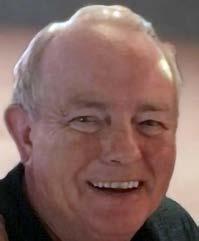
CLEMENT JOHN GULLIFORD
(KS 1963-70)
Clement John Gulliford died in Auckland, New Zealand, on January 2nd this year, two days after his 74th birthday on New Year's Eve.
John, a proud Welshman from Cardiff, was in Beaconfield when I came to Westwood from Prior’s Court in 1965, and we both moved to the main school in 1966. He was never terribly academic and took little or no interest in team games. Often in trouble for various misdemeanours, usually but not always involving smoking and drinking, he was a fully paidup member of the Hall House Crazy Gang of the late '60s. Other leading members of that group included Will Burnell, Jock Gunstone, Pete Halford, Mike Hutchings, Andy Macgarr and Nick Wright.
In passing, I was surprised to learn recently that his first name was Clement... I’m sure we never knew that, and suspect that he kept it a wellhidden secret.
A trawl of the old Kingswood Magazine for mentions of John resulted in the surprising discovery of a review of a
Junior Literary Association production of Sheridan's "The Rivals" in 1966, in which it was noted that "C.J. Gulliford was a rather bloodthirsty Sir Lucius O’Trigger, who managed to sustain his very personal Irish brogue..." Apart from that, he does not appear to have troubled the contributors to the school magazine very often.
After calamitous A Level results there was no question of his going to university, so he went off to work in a succession of jobs in London. I saw a lot of him when I was at UCL from 1971 to 1974, often visiting his flat in Willesden which was, unsurprisingly, something of a den of iniquity. In 1974 he moved to Warkworth in New Zealand and married Janet, a New Zealand girl he had met in London when she was on the obligatory Kiwi world tour.
I spent Christmas 1974 with him in New Zealand, and saw him several more times there in the following 40+ years, the last time being in 2018. By that time he had been divorced from Janet, with whom he had two children, and had married Mercedes, a lovely girl from Columbia who had somehow found her way to Auckland where John had then been living for many years.
John telephoned me in midDecember last year from a hospital bed in Auckland to tell me, calmly and matterof-factly, that the doctors had told him that his heart and kidneys were failing and that there was nothing more they could do for him, so he was expecting to die in the following days. His friends will remember that he was a life-long diabetic, although I
don't know whether that was a key factor in the end.
We spoke again several times after that call, and for the last time on his birthday, when we raised a metaphorical glass to mark the occasion. Mercedes called me two days later to confirm that he had died peacefully and that she was with him when it happened.
Clearly John was an unusual Kingswood boy, but he was generous and kind, often very amusing, not at all lacking in native wit (in fact, quite the opposite), and certainly one of the more memorable characters from my time at school.
Written by his good friend
Richard Batty (KS 1963-70)
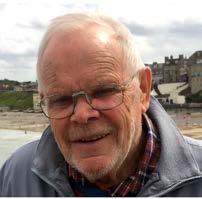
My father, John Horn, who has died aged 90, was a Headteacher in Yorkshire for many years, first at Aireborough Grammar School in Leeds, which joined the state sector under him, and then at Ossett School, from 1979 to 1994 up to his retirement. From 1989 to 1990 he was also the president of the Secondary Heads’ Association, now the
JOHN HORN (KS 1944-52)
Association of School and College Leaders.
With his conference speech for the Association in April 1990 he made national headlines – the Guardian, among others, reporting his call for those in positions of power to show faith in the state system. “Call me naive, foolish, idealistic if you like,” he said, “but logic decrees that if Prince William and Prince Harry and the sons, daughters and grandchildren of ministers, MPs, civil servants and local politicians were all destined for their local comprehensive, then the state system would be dramatically improved in a very short time.”
Born in Leigh-on Sea, Essex, John was the only son of Kenneth, a Methodist minister, and his wife, Margaret Horn (née Charlesworth). His father died in the Gold Coast (now Ghana), to where he had been posted, when John was seven years old. John was educated at Kingswood boarding school in Bath before graduating in classics from Exeter College, Oxford. He first taught classics and ancient history in the private sector at The Leys School in Cambridge, the setting for James Hilton’s novel, Goodbye, Mr Chips.
Despite, or maybe because of, his privately educated background, John was drawn to the state sector, encouraged by his wife, Jane (née Scott), whom he had married in 1960; she had been the secretary to the headteacher at The Leys. His first step into comprehensive education was in 1970 as Head of Middle School at Millom School, Cumbria.
He then became Head at Aireborough, before going on to Ossett School and then retirement.
Wherever John worked he was renowned for being a regular touchline supporter of school teams, having been a sportsman himself, playing rugby union for the Leicester First XV in the late 50s.
In retirement, first in Wakefield and then in Melton Mowbray, Leicestershire, he was an independent member of the West Yorkshire Police Authority and also a keen RI was always very proud of his kindness, tolerance and high ethical standards.
He is survived by Jane and his four children, Rachel, Barney, Dan and me, six grandchildren and a greatgranddaughter.
Otarian, serving two terms as president in Ossett and one in Melton Mowbray.
Matt Horn (Son)
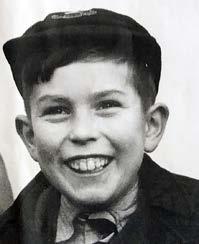
DAVID C LANE, CBE (KS 1951-61)
David C Lane CBE was born in Bolsover, Derbyshire in 1942. He followed brothers John, who had been part of the Uppingham cohort (1944-51), and Edward (1945-54) to Prior's Court and then Kingswood.
Both of his parents had worked as Doctors in China in the 1920s for the Methodist Missionary Society having to flee the country with impending civil unrest in 1928.
He went to Prior's Court in September 1951. These are some of his memories in his own words:
MALCOLM DAVID LAMB
(KS 1945-53)
Malcolm David Lamb passed away in the early hours of the morning of Wednesday 4th September 2024.
After leaving Kingswood, David went on to fly Vampires in the RAF followed by a long and successful career as the Advertising Manager for Rowntree Macintosh in York.
“On Sunday afternoons, unless you had visitors (which was most unusual) there were walks. One filled in a slip to describe where one was going and with whom, and then one wandered round the countryside for two or three hours, going to Fence Woods or Chieveley, for example, where there was a road where hundreds of toads were flattened every spring. Hermitage was a favourite spot, as one could put halfpennies on the railway line to have them flattened by the 'Hermitage Bocky', our name
for the little local train that went from Didcot to Newbury. The word 'bocky' was part of the PC argot, meaning old, worn out or decrepit, as Mr Bocky provided a clapped out 'bocky bus' to take us to the station at the end of term.”
“In June 1953 special celebrations were laid on for Coronation Day. It was a grey and damp day, and we had to get up at 6am as a treat, to have an early morning dip in the icy swimming pool. It was while I was recovering in the hot showers that I heard that Everest had been climbed for the first time, by Edmund Hillary and Sherpa Tenzing. During the morning we listened to the Coronation on the radio in the Hut, as Mr Maltby (PC Headmaster) was too late in trying to hire a television.”
“There was a rule that everything had to be eaten, this was circumvented in part by slipping bits of gristle to Maltby's dog, Fleck, a large hound which was let loose at mealtimes, and which lolloped round the dining room. The best thing about food at PC was the milk, which came direct from a farm across the field at the front of the School. At supper time, it was straight from the milking, still warm.”
He moved onto to Westwood and then to School House where he remembered:
“On one occasion Tony Griffiths and I liberated the Lower House mascot - a rather motheaten tiger's head, and lodged it in the roof space over the School House bathroom. I have a memory of Tony, who was very agile, climbing up through the trap door late
one night after lights out, and dangling a rope on which to haul up the tiger's head in the darkness. The disappearance caused quite a stir, as no one knew where it had gone, and we returned it in due course.”
From Kingswood he was awarded a scholarship to read Classics at Pembroke College, Cambridge. While there he became a member of the Methodist Society where he met his future wife, Kathleen.
He took his preaching exams and went on to take services in local Methodist chapels. On one occasion he was cycling from Cambridge to deliver a sermon at a distant village when a strong headwind caused him to arrive a few minutes late. Not only had they started into the first hymn, but he then discovered that the President of the Methodist Conference was in the congregation!
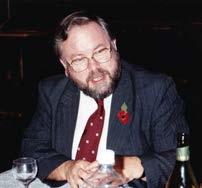
From university he went to work as a Housemaster at an Approved School for two years before being appointed as officer in charge of a Children’s Home in Somerset. After running that for several years he spent a stint at the Central Council for Education in Social Work. He then spent over ten years as Assistant Director of Residential Care in Hillingdon before a move to Yorkshire as Director of
Social Services for Wakefield. In the late 1980s and early 1990s he helped run the Yorkshire branch of the Kingswood Association. He officially retired after a major operation for cancer in 1992 but pursued a portfolio career in many different roles: as a trustee for Leonard Cheshire Homes, Chair of Langley House Trust and a special advisor to the National Childminding Association. He also acted as a professional witness in dozens of legal proceedings relating to social care. His last major role was on the panel of Historical Abuse Inquiry in Northern Ireland, a process that last five years.
He maintained his connections to Methodism throughout his life, latterly fulfilling the role of Steward at Sandal Methodist Church. He was awarded a CBE in 2015 for services to childcare.
He is survived by sons Peter (KS 1977-86) and Andrew (KS 1979-88).
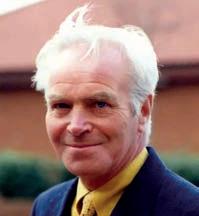
Peter sadly passed away on 5th April 2024, aged 78 years.
David wearing his KS tie
PETER NORMAN OGDEN (KS 1956-62)
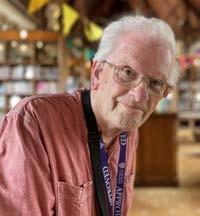
Born in Crewe in 1932 David was the son of an itinerant Methodist minister and hence, like many other children of clergy, was sent to board at Kingswood in both the Prep and Upper Schools. He was followed in short order by his “lovely, always smiling” younger brother Richard Martin Reed (KS 1947-54).
David’s earliest memories of Kingswood were of the prep school’s evacuation during World War II to Prior’s Court, a manor house in Chieveley, Berkshire. Where, aside from a train journey to school making an unscheduled overnight stopover in a siding and overhearing American airmen’s songs as they returned to nearby barracks from the pub, David recalled the experience as a happy one, enjoying a great degree of freedom in exploring the extensive beautiful grounds blissfully sheltered from the realities of the war.
Post-war an especially snowy winter in 1947 caused an outbreak of chess mania amongst the boys stuck inside, tiring even of sledging and snowballs as the freeze continued for months.
And it’s this, (perhaps as much as his strange spidery handwriting) that contemporaries will probably remember him. Family friend and fellow Kingswood pupil Neville Cromey-Hawke recalls David taking on multiple challengers with his back turned to the boards only occasionally needing reminding of where pieces were and the school magazine documents him petitioning for a dedicated practise room and winning matches against local schools, Bristol University and even Gloucester County.
David was characteristically humble about his success –claiming it was down to having a good memory before adding, as if such a thing was completely usual, that he actually had a photographic memory –a skill that also stretched to words on the page and music he listened to. Strange to be so gifted in one area but also almost completely lacking in another – he remained forever functionally innumerate, the complexities of finance or simple small change always beyond him.
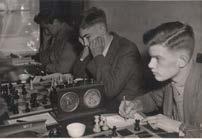
David could recall a literary quote for almost any occasion however, and one he leveraged to win an exhibition to Cambridge in 1951. But it was to be an offer he chose to decline – since in his mind the only route afterwards was
into the clergy or, worse… to become a teacher!
Deferring that true calling, David headed instead first into National Service (forestry) and then into librarianship. He undertook training in Brighton then a posting to Bridgwater where he was blissfully immersed in classical music –another passion – and then manned a mobile library or “pantechnicon” as he called it, all around Somerset before finally arriving in Bristol in the summer of ’63 for his career-defining role – at Clifton College.
David was the School’s first “professional” librarian tasked with cataloguing and systemising the impressive Percival Library which until then had a system of labelling applied to the shelves and not the books –a perfectly good system… so long as books were neither taken away or added to the shelves! In addition, he also taught English Literature to the Sixth Form and especially enjoyed coaching Oxbridge candidates. Poetry from Hardy, Yeats and Larkin were perennial favourites, and he was an enthusiastic performer of middle English (“A Wyf of Bath there was!”).
It was an exciting moment to teach the subject which for the first time was led by dedicated specialist English teachers (rather than generalist Housemasters). School historian Derek Winterbottom describes the faculty as “a formidable team and in their energetic and vociferous way they dominated the intellectual life of the School throughout the 1970’s”. In one year (1974)
DAVID SANTO REED
(KS 1943-51)
David visiting his beloved library in 2023
David (right) playing a chess tournament in Redland, Bristol in 1948
the School sent more English pupils to Oxbridge than any other in the UK.
David remained at Clifton as a Librarian, Teacher, and of course, leader of the chess club until 1983 where new paths led him first to Berkhamsted School and then into freelance copy editing. He returned for one last stint coaching Oxbridge students again before retirement and even then continued to contribute to the chess club (in increasingly honorary fashion) right up until he was 90.
Loving husband to Brenda and proud father to Claire and James he will be sorely missed by family, friends and colleagues alike. On pressed for memories of Kingswood he did remember especially enjoying singing Wesley’s great hymn “Captain of Israel’s Host and Guide” poignant in this instance as he and brother Richard both would have sung it on the last Sunday of the School year when they were saying goodbye to those who were leaving for the last time and hence setting out on a journey (just as, in a different way, David and Richard have). With its message of confidence in the abiding presence of "love, almighty love" it seems a fitting send off for them and a reminder of what they leave behind.
a former Kingswood pupil. Martin came to Kingswood in 1966, having attended Prior’s Court first like his father Geoffrey. He left in 1974 on completion of his A Levels in Maths, Physics and Chemistry, having achieved very good grades. Martin valued the education especially science and music provided at the School. He liked the way hobbies were encouraged and was proud that he had helped in the Avon Canal restoration.
After Kingswood he continued his education at Durham University reading Applied Physics and Electronics. His main career and real love was working with computers. He rose from a junior operator to a systems programmer, then to a systems manager of HighPerformance Computers at Fort Halstead, near Sevenoaks, Kent where he worked from 1984-2018. The work supported the Ministry of Defence and helped to keep our soldiers safe in their operations throughout the world.
Besides work he had many hobbies: he was a guard and volunteer at the Sittingbourne and Kemsley Light Railway, he trained to be a Master Scuba Diver and dived in Britain, in the Mediterranean and in Egypt. He was always interested in politics and was involved in local politics in Milton Regis, Sittingbourne where he lived and even stood as a local councillor. He also took up Ballroom Dancing which led to him meeting Sarah who he married in October 1996 onboard ‘Majesty of the Seas’, a cruise ship in Miami Harbour. Martin and Sarah settled in Rochester and their two sons Robert and Joseph
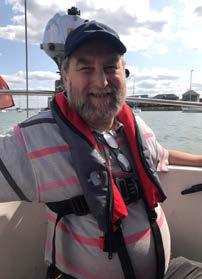
were born in 1997 and 2000 respectively. Martin played a big role in family life and was a very supportive and handson Dad.
Martin was also a bell ringer for over twenty years. He started ringing at Rochester Cathedral which he did for at least ten years. He became Tower Captain of All Saints’ Frindsbury and rang there right up until the coronation of our King. In his time, he helped many to learn the art of bell ringing. He later moved on to hand bell ringing at Frindsbury as he found it difficult to stand for long periods because of his illness. He really enjoyed hand bell ringing and participated in rallies and concerts, a favourite of his was a concert to raise funds for the Ukraine.
From 2015 Martin also shared his love of boating with the family and bought Loulou 2 named after his Mum, Margaret Louise. The family went on many trips on the dinghy locally but also further afield in Scotland. In January 2019 Martin bought his motor yacht ‘Heidi.’ It had been his lifelong dream to have his own boat, and Martin took family and
John Martin Rushton MBCS was born in 1956 in Sheffield, a son of the Manse and of
MARTIN RUSHTON (KS 1966-74)
friends out on his yacht, and they enjoyed exploring the River Medway and beyond. Martin studied hard to pass the necessary qualifications for a Day Skipper. Although Martin passed the Coastal Skipper theory part, ill health prevented him from doing the practical part as he did not have the stamina to do the night passage. Through his yacht he became very involved with the Medway Cruising Club and made many friends there.
Throughout his life, Martin never missed an opportunity to learn something new. He was always reading, listening or playing music, enjoying trips to the theatre and watching Crime Drama on television. He particularly enjoyed ‘Morse’ and identified very much with that character. Often he could also be found doing model engineering in the garage and writing and editing articles for Wikipedia as Martin of Sheffield on a wide variety of topics. He was a keen amateur historian which helped the marriage as Sarah was a History Teacher. Together they enjoyed exploring historical sites and watching programmes about History on television. Martin also shared Sarah’s love of cats and was a lifelong cat lover.
Martin died peacefully at home in Rochester on 16th October 2024 following a long brave battle with terminal prostate cancer since being diagnosed in December 2018. He is survived by his wife Sarah and his two sons, Robert, a Teacher and Joseph, a Civil Engineer.
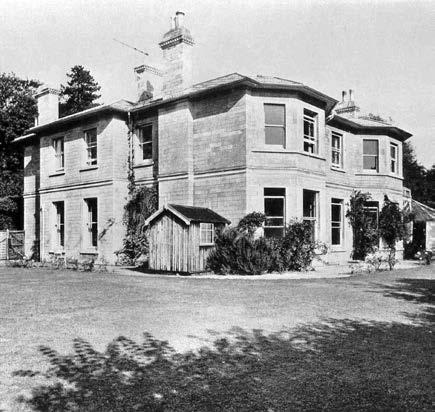
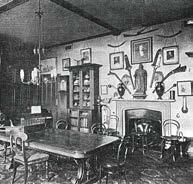
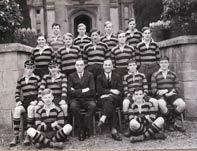
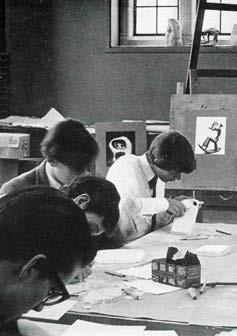
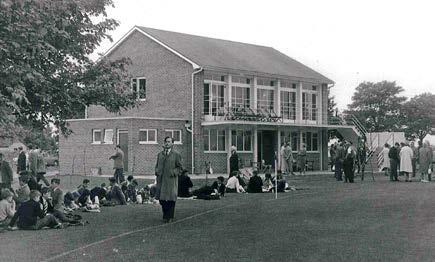
Beaconfield House
The Art Room
Committee Room, 1900
Upper Pavilion
The Engagement Department
As a school, we are very fortunate that our Old Kingswoodians, staff, Governors and parents both former and current, unite to give through gifts of their time, expertise and generous donations to support Kingswood.
In September 2024, as our 275 Campaign ended, we welcomed new staff to the Development office and took the opportunity to create an Engagement Team.
“...Bursaries enrich our community, fostering diversity and excellence.”
The aim of the Engagement Team is to provide a central resource and platform for co-ordination and communication to support all these various groups. This ranges from sharing the latest news to members about Kingswood, organising events, providing networking opportunities for members and maintaining our central database of the community, as well as publishing the Kingswood Association News. We work with the Old Kingswoodian Association, the 1748 Legacy Society, the Archives Department and with any member of the wider Kingswood community.
Looking to the future, a key priority is to continue to raise funds in support of our Bursary fund, to increase our ability to offer transformational bursaries to those talented pupils who otherwise would not be able to benefit from a Kingswood education. The generosity of the Kingswood community has already made a profound difference to the lives of many young people, opening doors to life-changing opportunities. These bursaries enrich our community, fostering diversity and excellence. Your contribution, no matter the size, plays a crucial role in sustaining this vital program. We look forward to sharing more detail on this as the next academic year gets underway.
In the meantime, we would like to remind you about the Kingswood Community website, our dedicated online platform which provides opportunities to reconnect with old friends, make new connections and keep up to date with news and events. Please sign up here: https://community.kingswood. bath.sch.uk
Meet the Team
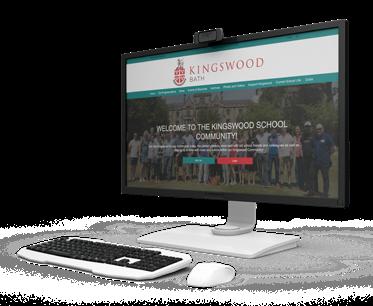
HANNAH DREW – Director of External Relations hdrew@kingswood.bath.sch.uk
KATIE CALVERT-JONES – Head of Engagement kcalvertjones@kingswood.bath.sch.uk
MICHELE GREENE – Alumni and Community Manager mgreene@kingswood.bath.sch.uk | Tel. 01225 734283
ZOË PARSONS – Archivist zparsons@kingswood.bath.sch.uk
If you have any questions, please contact one of our team.

Katie Calvert-Jones
This October I joined the Kingswood School community as Head of Engagement for the foundation, leaving my previous role at the University of Bath, where I had built my career over the past 10 years, culminating in leading alumni and external engagement for the School of Management. On arrival at Kingswood, I had barely got my feet beneath my desk before being whisked off to London by the very wonderful Michele Greene, Alumni and Community Manager, to meet with Kingswood alumni at a series of reunion events.
A joyful part of this role is bringing people together, and hearing the many inspiring stories of where individuals’ paths have taken them.
I’ve so far enjoyed meeting recent leavers at the annual Apex Christmas event, welcomed many home to Kingswood School, and most recently hosted an afternoon tea in Bournemouth.
It has been a true privilege to take this role, and at such an exciting time as we plan ahead for future projects and priorities. As a parent of the School (my son, Freddie, is in Year 7), I was already very aware of the values upheld, underpinned by the school’s Wesleyan ethos, but through meeting more of the community: staff, pupils, parents and alumni, I’ve been struck at how deeply the spirit of kindness runs through.
Thank you to everyone who has so far made my time
Kingswood SPORTS PAVILION
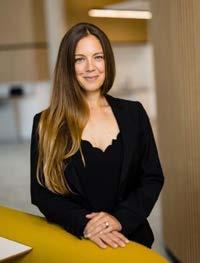
at Kingswood welcoming, enjoyable and rewarding, and I look forward to meeting many more of you over the coming months and years, and I do hope that in my role, I can contribute to the future success of such an amazing community.
All the best
Katie Head of Engagement
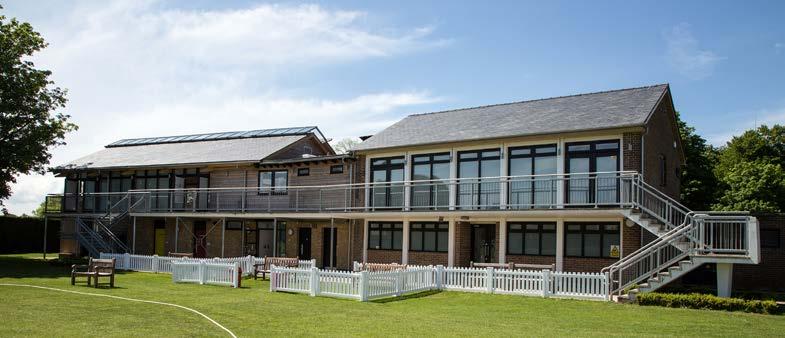
The perfect venue for your next conference, meeting or private party in Bath.
Looking for a versatile space to host your conference, meeting, training day or private party?
Our modern and spacious Sports Pavilion, with a Bar Room and Function Room available to hire, is the ideal venue.

01225 734309
www.kingswood.bath.sch.uk
